- NONFICTION BOOKS
- BEST NONFICTION 2023
- BEST NONFICTION 2024
- Historical Biographies
- The Best Memoirs and Autobiographies
- Philosophical Biographies
- World War 2
- World History
- American History
- British History
- Chinese History
- Russian History
- Ancient History (up to 500)
- Medieval History (500-1400)
- Military History
- Art History
- Travel Books
- Ancient Philosophy
- Contemporary Philosophy
- Ethics & Moral Philosophy
- Great Philosophers
- Social & Political Philosophy
- Classical Studies
- New Science Books
- Maths & Statistics
- Popular Science
- Physics Books
- Climate Change Books
- How to Write
- English Grammar & Usage
- Books for Learning Languages
- Linguistics
- Political Ideologies
- Foreign Policy & International Relations
- American Politics
- British Politics
- Religious History Books
- Mental Health
- Neuroscience
- Child Psychology
- Film & Cinema
- Opera & Classical Music
- Behavioural Economics
- Development Economics
- Economic History
- Financial Crisis
- World Economies
- Investing Books
- Artificial Intelligence/AI Books
- Data Science Books
- Sex & Sexuality
- Death & Dying
- Food & Cooking
- Sports, Games & Hobbies
- FICTION BOOKS
- BEST NOVELS 2024
- BEST FICTION 2023
- New Literary Fiction
- World Literature
- Literary Criticism
- Literary Figures
- Classic English Literature
- American Literature
- Comics & Graphic Novels
- Fairy Tales & Mythology
- Historical Fiction
- Crime Novels
- Science Fiction
- Short Stories
- South Africa
- United States
- Arctic & Antarctica
- Afghanistan
- Myanmar (Formerly Burma)
- Netherlands
- Kids Recommend Books for Kids
- High School Teachers Recommendations
- Prizewinning Kids' Books
- Popular Series Books for Kids
- BEST BOOKS FOR KIDS (ALL AGES)
- Ages Baby-2
- Books for Teens and Young Adults
- THE BEST SCIENCE BOOKS FOR KIDS
- BEST KIDS' BOOKS OF 2023
- BEST BOOKS FOR TEENS OF 2023
- Best Audiobooks for Kids
- Environment
- Best Books for Teens of 2023
- Best Kids' Books of 2023
- Political Novels
- New History Books
- New Historical Fiction
- New Biography
- New Memoirs
- New World Literature
- New Economics Books
- New Climate Books
- New Math Books
- New Philosophy Books
- New Psychology Books
- New Physics Books
- THE BEST AUDIOBOOKS
- Actors Read Great Books
- Books Narrated by Their Authors
- Best Audiobook Thrillers
- Best History Audiobooks
- Nobel Literature Prize
- Booker Prize (fiction)
- Baillie Gifford Prize (nonfiction)
- Financial Times (nonfiction)
- Wolfson Prize (history)
- Royal Society (science)
- Pushkin House Prize (Russia)
- Walter Scott Prize (historical fiction)
- Arthur C Clarke Prize (sci fi)
- The Hugos (sci fi & fantasy)
- Audie Awards (audiobooks)
Make Your Own List

Nonfiction Books » History Books » Modern History (1800-1945) » World War 2
The best books on the holocaust, recommended by steven katz.
In the years immediately after World War II, the Holocaust was little studied. That all changed with the publication of Raul Hilberg's book, The Destruction of the European Jews. Steven Katz , professor of Jewish Holocaust Studies at Boston University and former Director of the Elie Wiesel Center for Jewish Studies, introduces the best Holocaust books.
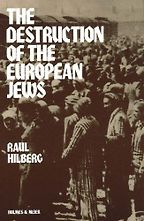
The Destruction of the European Jews by Raul Hilberg
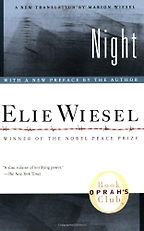
Night by Elie Wiesel
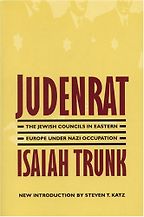
Judenrat by Isaiah Trunk
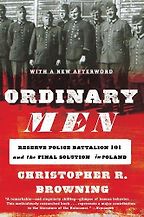
Ordinary Men: Reserve Police Battalion 101 and the Final Solution in Poland by Christopher Browning
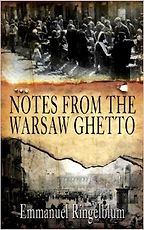
Notes from the Warsaw Ghetto by Emanuel Ringelblum

1 The Destruction of the European Jews by Raul Hilberg
2 night by elie wiesel, 3 judenrat by isaiah trunk, 4 ordinary men: reserve police battalion 101 and the final solution in poland by christopher browning, 5 notes from the warsaw ghetto by emanuel ringelblum.
Y ou’ve picked books for us to help understand the Holocaust , and your first choice is The Destruction of the European Jews , the landmark study of the Holocaust by Raul Hilberg. This was first published half a century ago, and now runs to three volumes. Can you tell me about it?
He had great difficulty getting it published, but, once it did get published, people saw that it was a subject of enormous historic importance. Also, the way he carried it out – Hilberg, as a young man, had helped do some of the research for the trials at Nuremberg and elsewhere. So, his close knowledge of the huge collection of German documents that had been brought together for those trials just changed the whole landscape. And Raul continued to work on this book for the next 50 years – he only passed away two years ago – and it grew and grew into the present three-volume edition.
And why did he have trouble getting it published?
At that time people did not seem to feel that the Holocaust was a subject that would have a readership, that there was a lot of interest in it. Today we’re so well aware, it’s so much part of the public discourse and the public conversation, but at that time it was a subject that was little talked about in public. The survivors didn’t talk, and the victimisers didn’t talk, so there was a general agreement to push it to the side – both in scholarship and in general conversation.
Is there anything you would point to in the book as being of special significance?
Yes, his method. He was a student at Columbia University, of political science. So his method is that of a political scientist. Also, more importantly, what Raul did was emphasise the German side of the Holocaust. He didn’t study Jewish documents that closely, or look at the behaviour of the victims, at resistance, or anything like that. He went right to the documents he knew from the war trials, and he concentrated on the way the mass murder was organised by the German state, by the Nazis.
He had an eye especially for the issues of bureaucracy and technology, which he thought were the decisive factors that made this a new kind of major crime. What was special here was the use of modern organisational techniques, of which he was a student, to carry out this mass murder.
And no one had focused on that before?
The second book on your list of Holocaust books is Night, a short but extremely powerful book by Elie Wiesel.
This was published by Elie Wiesel and now is probably the best known memoir that has been written about the experience of the death camps. Elie Wiesel was a young boy of 14 when his tiny city, a place called Sighet, mostly Jewish, in what was then the Romania-Hungary borderland, was overrun. You have to remember that until 1944, Hungarian Jewry had been spared the most extreme forms of Nazi violence. But in 44 the situation changed and the Nazis essentially took over much of the organisation of the Jewish population in Hungary. They came into his little town, the shtetl, and they took him and his family. He went to Auschwitz, where his father died. But he survived the war, miraculously.
Then, in the 1950s, he wrote a memoir in Yiddish. It was a very long memoir, too long, and at that time he was living in Paris. He was with some French intellectuals who told him to shorten the volume and to publish a very watered down or limited version in French. Which he did – and the rest is history. It started to be read widely, and it continues to have an enormous impact all over the world. For example, a few years ago in Chicago they chose it as the book of the year that everybody in all the schools read. Also, Oprah Winfrey picked his book, the new translation, for her book club recently. So I would say of all the books that people read about the Holocaust, besides The Diary of Anne Frank , the most famous memoir is by Elie Wiesel.
What do you think makes it so good?
I think the way the personal scenes are described, the telling scene of his father’s death, the characters he is able to draw and portray and this strange twilight life that people lived. All that has enormous emotional power. And he has the craft; he is a novelist and, unlike many memoirs (which are all important and all have information and all shed light), this has a literary kind of quality. He is able to bring to the focus of the reader a deep emotional power, and something also of the mysteriousness of what happened in the camps. There was something here that really reached the limits of human experience.
“There was something here that really reached the limits of human experience”
Next on your list of Holocaust books is Isaiah Trunk’s Judenrat , about the Jewish councils in the ghettos.
There is always a discussion and emphasis in films and in various kinds of public conversation about the role of the Germans: What did Hitler order? Why was Hitler obsessed with the Jews? Why did the Third Reich do what it did in the way of anti-Semitism? What was the logic of their racial policy? Why did they create death camps, Einsatzgruppen [see below] and ghettos? But the story is only partially a German story. The victims of the tragedy are the Jews and, therefore, it’s a crucial thing in studying the Holocaust to be able to see the response of the victims.
Now, this comes in many places and in many forms and one of the most controversial was in the ghettos. The ghettos lasted from early 1940, when the first ghetto was enclosed, till the last ghetto, the Lodz ghetto, was dismantled in August of ’44. And there were hundreds of ghettos spread all over Europe. So for five years, millions of Jews lived and died in these enclosed spaces, and to some degree they had the ability to control aspects of their life. The Germans would give an order, a work order, food requirements, issues about health, deportations, whatever it was, and it was the Jews themselves who had to pass these orders on and implement them to a large degree. Now the people who were in power to do that were the members of Jewish councils. One of the first things the Nazis did when they established a ghetto was to establish a Jewish council – big ghettos had bigger councils, small ghettos also had councils. The Nazis directly appointed the leaders of the ghetto councils and they were the crucial mediators between the German overlord, German policies and the Jewish people.
Now after the war, there was tremendous debate about their role, about how they acted, about the morality of some of them, about the fate of many of them. It became especially heated during the Eichmann trial in the early 1960s in Israel, when Hannah Arendt published her book Eichmann in Jerusalem , which is still widely read and very well known. She essentially accused them of being collaborators, and said that had there been no Jewish councils, had there been no Jewish leadership, more Jews would have survived, there would have been less mass murder. So this subject is at the very centre of the study of the Holocaust. And Isaiah Trunk, who is a survivor, undertook this study of the various councils and investigated the question of collaboration and of cowardice , of heroism, of support for resistance or lack of support. And his book has become one of the really great classics of Jewish Holocaust literature.
And what does he conclude?
On to the next book on your list of Holocaust books which is Ordinary Men: Reserve Police Battalion 101 and the Final Solution in Poland. This book is presumably looking at the issue of how ordinary people came to carry out such atrocities?
This was a book written by Christopher Browning who now teaches at the University of North Carolina. Chris found a collection of documents that were testimonies given at a trial of a group of German police and they talk about their role in the murder of eastern European Jewry. One needs to know that with the invasion of Russia, in the summer of 1941, the Nazis organised a new form of violence, and they called them Einsatzgruppen . There were four groups of men. They were not volunteers, they were assigned to these units. The largest group was a thousand men and there were three slightly smaller units, a total of 3,000 men. And their orders were very simple – to go in right on the heels of the Wehrmacht [the German army], as the Russians retreated and the Nazi army moved forward.
They were to go into the large towns first and then the smaller communities, round up all the Jews and murder them. Initially, the order seems to have been for Jewish men, but very soon after, on the direct order of Heinrich Himmler, it turned to the killing of women and children as well. These groups went literally from town to town, rounded up the Jews and either shot them or put them in the synagogue and set it ablaze. Or, for example, as they did in Vilnius in Lithuania, they marched them outside the city, to the wooded areas, made them dig large trenches, lined them up, shot them, then the next group had to go in, get shot, lie down on the first group, and slowly you have a pyramid effect of bodies on bodies. Then it would be covered over. So this murder – which took about a million and a half lives over 18 months – was primarily carried out by these four groups. But they were not alone. They had assistance, both from the Wehrmacht, (though the army would deny it for many years) and from various police battalions. There were local police battalions – Lithuanians, Ukrainians, etc. But other battalions came from Germany, what were called ‘order police’.
So this group that Chris Browning wrote about was Order Police Battalion 101. And they describe the extraordinary behaviour that they participated in. Now the reason this is such an important book and raises deep questions is that when you study the Holocaust you ask almost immediately: How could people do this? How could men who had their own children, go out and murder other children? How could men who are fathers take children and smash their heads against a wall? Or husbands take women and rip open their wombs and kill their infants and shoot them behind the ear? So the Browning book raised that question in a very, very strong and powerful way, based on firsthand testimony. He also tries to offer a series of explanations of human behaviour that are more controversial. The story of this battalion was then picked up by Daniel Goldhagen, who wrote the book that caused such an enormous stir, Hitler’s Willing Executioners . That was probably the greatest stir in Holocaust publications since Hannah Arendt’s Eichmann in Jerusalem.
And what did he argue?
Goldhagen laid the charge against Germans, specifically, of possessing what he called an eliminationist anti-Semitism at the very heart of their character, of their culture, of their society. And that, of course, raised issues of collective guilt, and, also, is there such a thing as a national identity? It set off an enormous controversy in Germany and elsewhere. So the two books together that took the same set of documents as their central evidence, are a vital part of the debate today about the Holocaust, over the behaviour of the murderers.
And what explanations does Browning offer that you agree with?
Browning goes through different explanations and I agree with a lot of things, and I disagree with a lot of things. There’s the old explanation that people just follow orders. There have been various experiments done since World War II, especially by a man named Stanley Milgram at Yale, where he experiments with his students to see how far they will go just to get an A in a class. And then there are various discussions by social scientists and others about brutalisation of people in times of war, how values change.
And then you get those who emphasise the force of indoctrination and anti-Semitism: that’s the Goldhagen explanation. Browning himself put a lot of weight on the issue of peer pressure. The people in these groups were given the opportunity to step out and not participate. But almost no one did, because they were afraid of being called cowards and losing the respect of other people in the group. Browning puts a special importance on that psychological element, that people are very conformist, very afraid of stepping out and being seen as saying no to the group. Goldhagen found that explanation much too tepid for a crime like this and focused on the profound importance of ideology. So these are the debates that have been going on and I happen to think that ideology was probably more important than Christopher Browning gives it credit for.
People are just capable of horrific things. Look at the Rwandan genocide .
You don’t have to wait for the Rwandan genocide. Already 200 years ago Hegel referred to human history as a slaughter bench. We have had mass crimes and violence and killing of the innocent since the time of Cain and Abel. What is special about the Holocaust is not that you have violence and killing, but that the core is an ideological drive to make a complete extinction of an entire people. That seems to me to be the central and uniquely ideological element in the Holocaust.
“What is special about the Holocaust is that the core is an ideological drive to make a complete extinction of an entire people”
The last of your Holocaust books is Notes from the Warsaw Ghetto by Emmanuel Ringelblum.
This again is a way of having access to the Jewish side of the tragedy. There was an organisation started in the Warsaw ghetto by a great man named Emmanuel Ringelblum. Ringelblum had been a historian before the war, and when the war began he had a stroke of genius, of tragic genius. He organised a team of people to go out and save all the material they could find about the life of the ghetto. He also commissioned some of his colleagues to go out and do investigations of subjects that might be important to future generations: for example, how did the Jewish children behave in the ghetto? How did Jewish women behave in the ghetto? What was the self-help operation in the ghetto? What happened to orphans? What was the food supply like? How was it distributed? What about religious services? What about traditional religious communities, the rabbis and students?
His group was called the Oneg Shabbat group, because they met on the Sabbath, and they collected enormous quantities of material, because they were anxious that the world should have information the Nazis would not give them. They did not want the Nazi voice to be the only voice about the ghetto; they wanted the Jewish voice to be heard. So they collected this material and near the end of the war, when it was clear that the Warsaw ghetto was going to go up in smoke as a result of the uprising in Passover of ’43, they put it in big metal milk cans and buried them. After the war, they found most of these cans, not all of them. So the single most important source of information about Jewish behaviour during the war in the ghettos comes to us from these Notes from the Warsaw Ghetto from Ringelblum and his team. The Oneg Shabbat records are absolutely the most essential Jewish documents we have from the Holocaust.
And Ringelblum was executed?
He did survive for a while after the Warsaw uprising, but, yes, he was killed during the war.
Is there a personal element to what he writes?
He tries not to. He certainly has his point of view. He is critical of certain kinds of Jewish behaviour, he is critical of certain actions – but the idea was really to be an objective ghetto chronicler, and he tries very hard to do that, not to let his own emotions get in the way. Though, of course, in the situation in which he found himself, and the Jewish people found themselves, it was impossible to separate out judgments altogether. So you get some very critical judgments about the Jewish council, about the Jewish police in the ghetto, and some of the other people who are in leadership roles. But, by and large, the importance of the collection, of the material, is this good faith effort to collect material and provide for future generations a record of what was going on, on a daily basis, in the Jewish communities under siege.
Holocaust Studies is your field. In July 2009 there was an article in the New York Review of Books, “Holocaust: The Ignored Reality” by Timothy Snyder, arguing that there has been too much focus, when it comes to the Holocaust, on western European Jewry, when the bulk of the killing was of eastern European Jews. Was that an important article?
It was an important article, but it wasn’t anything new. He made it sound as if he had discovered the wheel. The fact is that scholars know that the centre of the Holocaust was not in western Europe, but in eastern Europe – in Poland, and in the Baltic states, the Ukraine, the borderlands of Russia, Romania, and eventually Hungary. That was the great central Jewish community of Europe, and that was where the big ghettos existed and that was where the policy of the Einsatzgruppen took place, with the invasion of Russia. Finally, the six death camps – camps that were set up specifically for the production of corpses – were all in Poland. So people were brought to Poland from other places, and they were put in Poland because Poland was at the centre of Jewish life. There were 3.3 million Jews in Poland before the war, there were another four or five million Jews in the Pale of Settlement, the westernmost part of the Soviet Union. There were hundreds of thousands of Jews in the Baltic states, there were almost 800,000 in Hungary, three-quarters of a million in Romania.
Support Five Books
Five Books interviews are expensive to produce. If you're enjoying this interview, please support us by donating a small amount .
So, it comes as no surprise that, if you’re going to kill the Jews of Europe, you’re going to do it in central and eastern Europe, and the Nazis knew that and did that. So the emphasis in that article is correct – it’s only outsiders, people who don’t really know all the details, who get their information from Hollywood, who concentrate on western Europe. But scholars knew that eastern Europe was the centre of the storm and that’s why Hilberg, for example, concentrates so much on Polish activity, the role of the German state in Poland, that’s why the Jewish council book by Trunk is primarily about Polish ghettos, Browning’s book is about war on the eastern front with the invasion of Russia, and so on.
In terms of the number of Jews killed by the Nazis, is there consensus on that?
Himmler himself had come up with a number through various methods when he wanted to find out what he had accomplished, and that was six million. And that became a kind of canonical number at Nuremberg and afterwards. There are different totals that have been offered by scholars who have gone back to study the death camp records, the Einsatzgruppen records, etc. The numbers all fall somewhere in the five to six million range. That’s the overwhelming consensus, and nobody who is not a Holocaust denier has any trouble finding that there were at least 5.1, 5.2 million, up to 6 million, 6.2 million deaths when you total all the various places people were killed in the records we have.
And that includes eastern Europe where we don’t know as much what went on?
It includes eastern Europe. For example, of the 3.3 million Jews in Poland, after the war 92-93 per cent were dead. In Vilnius and Riga and other parts of those Baltic states you have a 96 per cent death rate, the highest anywhere. We have lots of evidence – the Nuremberg tribunal did a pretty thorough job of collecting documentation, the Russians collected documentation, and the Germans themselves kept lots of documents that were captured. So we have a pretty good idea of where and how this was done. It’s not exact, there are still things to learn and important information to be discovered, but the broad outline, especially the numerical, demographic outline, is pretty clear.
February 22, 2018
Five Books aims to keep its book recommendations and interviews up to date. If you are the interviewee and would like to update your choice of books (or even just what you say about them) please email us at [email protected]
Steven Katz
Steven Katz holds the Alvin J. And Shirley Slater Chair in Jewish Holocaust Studies at Boston University and is the former Director of the Elie Wiesel Center for Jewish Studies.
We ask experts to recommend the five best books in their subject and explain their selection in an interview.
This site has an archive of more than one thousand seven hundred interviews, or eight thousand book recommendations. We publish at least two new interviews per week.
Five Books participates in the Amazon Associate program and earns money from qualifying purchases.
© Five Books 2024
- Sixteen essential books about the Holocaust
Sixteen essential books about the Holocaust
Our pick of the most informative books about the holocaust to help you learn, reflect and remember..
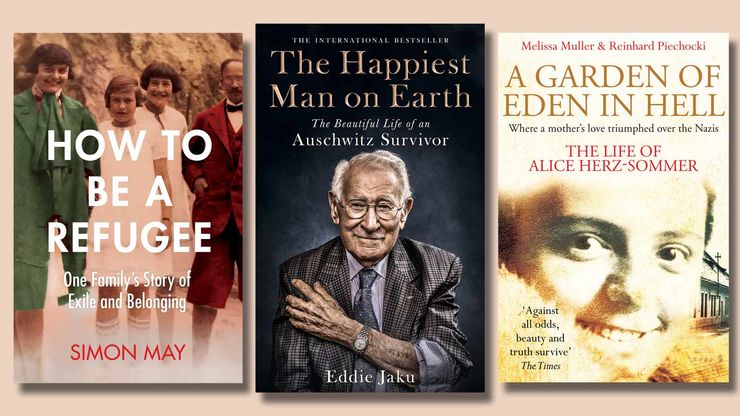
Here, Journalist Arielle Tchiprout reflects on the importance of remembering the Holocaust, and shares an essential reading list to educate readers on one of the darkest periods of human history.
It’s easy enough to think that the Holocaust is simply a relic of the past; that it belongs only in history textbooks or in museum displays. Yet, the devastation and destruction it caused lives on today, which is why remembering it is so important.
Of course, you’ll already know what the Holocaust was – the genocide carried out by the Nazis during World War II, in which six million Jews were murdered – but you won’t necessarily know the myriad stories behind those numbers, and the stories of millions more people who managed to survive. Like my grandfather, who ran away from a forced labour camp in Bulgaria in 1945. He kept the yellow star he was forced to wear until he passed away in Israel in his nineties. Or my cousin’s grandparents, who managed to flee Vienna for the United States, after they lost their basic human rights in the place they had called home. Or my colleague, who has no extended family past her grandparents, because they all perished in Auschwitz. It’s hard to find a Jewish person living in Britain today who doesn’t have their own story to tell; often, like mine, it’s a story of luck that their family tree still exists at all. For many second- or third-generation survivors, the trauma lives on inside our hearts.
So although the Holocaust is history, it’s really not so distant. In fact, some survivors are still alive to tell the tale – memoirists like Dr Edith Eger and Eddie Jaku can still recall the horrors with burning clarity. And with the rising tide of antisemitism and fascism around the world, it feels more pertinent than ever to remember those whose lives were stolen (both physically and mentally), to ensure such hatred never seeps so deeply into society again.
In my opinion, the best way to remember is to immerse yourself in the stories of people who were there. People with hopes and dreams, anxieties and insecurities, humour and resilience; people who loved, were loved and are still loved by those who are living today. Read on for my pick of the best true-story accounts, to learn about the Holocaust.
The best memoirs and biographies for learning about the Holocaust
A little girl in auschwitz, by lidia maksymowicz.
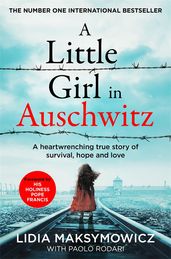
The extraordinary story of Lidia Maksymowicz , who survived at the hands of Auschwitz's 'Angel of Death' Dr Mengele, A Little Girl in Auschwitz has touched hearts around the world. Brought to the infamous Nazi death camp with her mother when she was just three years old, Lidia experienced unimaginable horror daily, until the camp was liberated in 1945. Through her own words, Lidia tells her moving true story and shares how her experiences have shaped the rest of her life.
The Happiest Man on Earth
By eddie jaku.
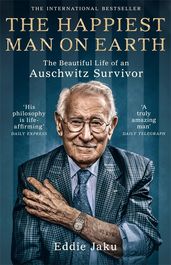
100-year-old Eddie Jaku survived the horrors of Auschwitz, yet he now believes he is the ‘happiest man on Earth.’ Eddie’s inspirational memoir, published last year, tells the story of losing those he loved, but never losing hope, and it’s full of wisdom about finding happiness even in the darkness.
Lily's Promise
By lily ebert.
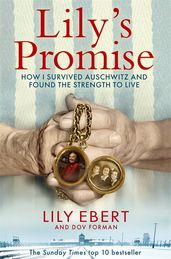
This is the moving story of Holocaust survivor Lily Ebert, written with her great-grandson Dov. When Lily was liberated at the end of the Second World War, a Jewish-American soldier handed her a banknote with the words ‘the start to a new life, good luck and happiness!’ written on it. Decades later, when Lily was 96, Dov decided to track down the family of that soldier. Lily finally told her life story to the world, from her childhood in Hungary to the deaths of her family members in Auschwitz to her new life in Israel and then London, fulfilling the promise she made to her 16-year-old self to share the horrors of the holocaust.
A Mother's Courage
By malka levine.
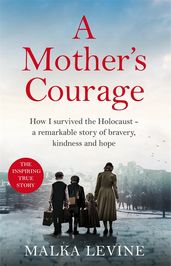
A powerful and moving tribute to a determined and resourceful woman who refused to give up hope so long as her children needed her. Malka was two when the Nazi invaders forced her family into the Jewish ghetto in Volodymyr-Volynskyi, a small city in present-day Ukraine. Of the 25,000 Jews in the city in 1939, only 30 would survive. Rivka kept Malka and her two older brothers alive through eighteen terrifying months, as the Nazis systematically killed the inhabitants of the ghetto. In the midst of the inhumanity, a few people risked their lives to help. A Mother’s Courage is Malka’s chance at long last to thank not only her brave mum but all the heroes who opened their hearts to her and her family.
How to Be a Refugee
By simon may.
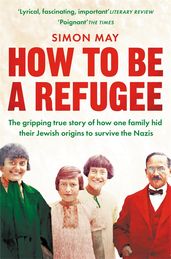
While we often hear stories of those who escaped or perished during the Holocaust, Simon May tells a very different, much rarer story: of those who refused to believe they were Jewish. May tells the gripping story of his mother and his two aunts, whose trajectories included converting to Catholicism and securing ‘Aryan’ status with high-ranking help in the Nazi regime. After the war, May’s mother continued to conceal her identity, leading him on an illuminating quest into what constitutes belonging, and home.
A Garden of Eden in Hell: The Life of Alice Herz-Sommer
By melissa muller.
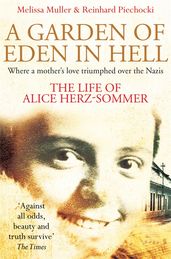
This is the story of Alice Herz-Sommer, who was one of the best-known pianists in Prague. When she, her husband and their six-year-old son were deported to the concentration camp Theresienstadt, music was her salvation, and her concerts gave her fellow prisoners hope in a world of pain and death.
by Edith Eger
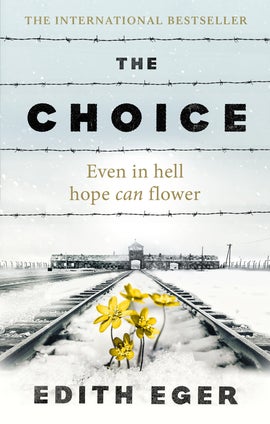
Hungarian-born Edie was just like any other teenager – she dreamed of being a ballerina, and she was head-over-heels in love with her first boyfriend. Until, aged sixteen, she was sent to Auschwitz, where she watched her mother enter the gas chambers, and she was forced to dance for notorious Nazi Dr Josef Mengele. Edie went on to become an acclaimed clinical psychologist, and this is her incredible story of resilience and healing.
Man's Search For Meaning
By viktor e frankl.
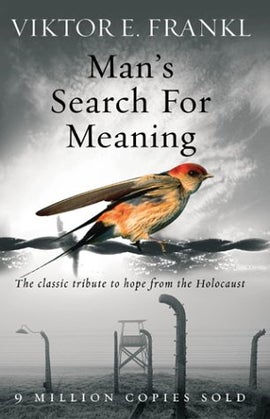
A prominent Viennese psychiatrist before the war, Viktor Frankl was able to observe the way he and others in Auschwitz coped (or didn’t) with the experience. He came to believe that humans’ deepest desire is to search for meaning and purpose. This outstanding book (which has sold 16 million copies) transcends its time and place; it’s an exploration of what it truly means to live.
The Tattooist of Auschwitz
By heather morris.
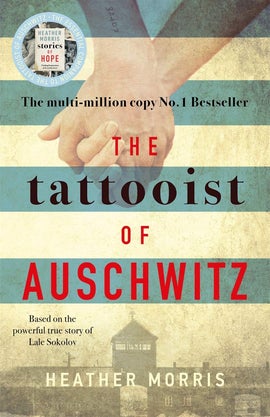
This unforgettable book has sold five million copies, and for good reason. Through this fictional account, Heather Morris tells the beautiful true story of Lale Sokolov, whose job in Auschwitz was to tattoo prisoners’ arms. Waiting in line to be tattooed was a young woman named Gita. For Lale it was love at first sight, and he became determined to not only survive himself but to ensure she did too.
The Diary of a Young Girl
By anne frank.
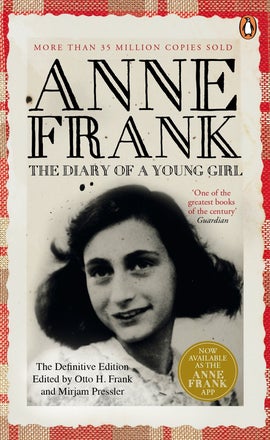
Anne Frank’s diary has become one of the most famous books about the Holocaust, and it remains one of the most introspective, enlightening accounts of what it was like to be a Jewish child living in hiding. A must-read for both children and adults.
The Little Girl Who Could Not Cry
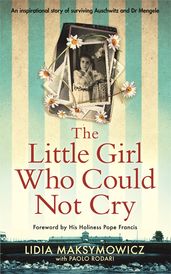
Lidia Maksymowicz was just three years old when she arrived in Auschwitz-Birkenau with her family. Once there, Lidia was picked by Dr Josef Mengele for his experiments and survived eighteen months of unimaginable trauma, while her mother risked her life to secretly visit her. By the time Birkenau was liberated her family had disappeared, and Lidia was adopted by a loving family, but in 1962, she discovered that her birth parents were still alive and she faced an agonising choice. In this powerful, moving and ultimately hopeful autobiography, Lidia comes to terms with the past and finds the strength to share her story, saying: ‘Hate only brings more hate. Love, on the other hand, has the power to redeem.’
If This is a Man
By primo levi.
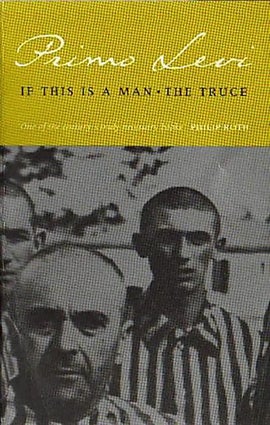
Primo Levi, an Italian chemist, was arrested as a member of the anti-fascist resistance during the war and deported to Auschwitz. His impassioned attempt to understand the 'rationale' behind the concentration camps was completed shortly before his death in 1987. 'The death of Primo Levi robs Italy of one of its finest writers . . . One of the few survivors of the Holocaust to speak of his experiences with a gentle voice.' – The Guardian
Further non-fiction about the Holocaust
Final solution, by david cesarani.
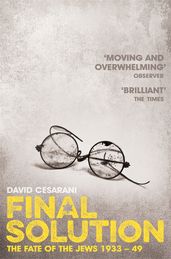
This is an intelligent and thought-provoking short history by one of this generation’s leading Jewish and Holocaust scholars. David Cesarani adopts a rigorously Judeocentric approach to the whole narrative of the march to genocide and its aftermath, presenting a subtly different timeline which casts afresh the horror of the period and engenders a significant re-evaluation of the how and why.
Novels about the Holocaust
The yellow bird sings, by jennifer rosner.
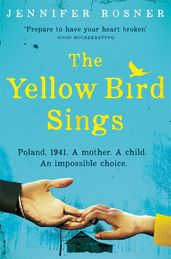
In Poland in 1941, Róza and her five-year-old daughter Shira spend their days and nights hiding in a farmer's barn after escaping being rounded up with the other Jews in their town. Róza tells her daughter stories of a yellow bird, the only one who can sing the melodies Shira composes in her head. Róza would do anything to keep her daughter safe, but eventually, she is faced with an impossible choice – keep her close, or let her go and give her a chance to survive.
The Tobacconist
By robert seethaler.
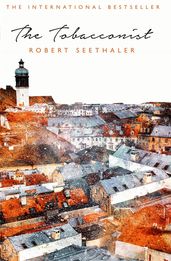
The Tobacconist tells a deeply moving story of ordinary lives profoundly affected by the Third Reich. Seventeen-year-old Franz accepts an apprenticeship with elderly tobacconist Otto Trsnyek and is soon supplying the great and good of Vienna with their newspapers and cigarettes.
But it is 1937, and in a matter of months Germany will annex Austria and the storm that has been threatening to engulf the little tobacconist store will descend, leaving the lives of Franz, Otto and their customers irredeemably changed.
The Most Precious of Cargoes
By jean-claude grumberg.
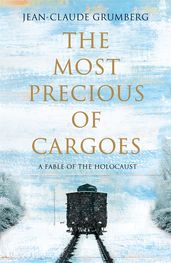
Told with a fairytale-like lyricism, this is a fable of family and redemption set against the horrors of the Holocaust. A poor woodcutter and his wife lived in a forest. Despite their poverty and the war raging around them, the wife prays that they will be blessed with a child.
A Jewish man rides on a train with his wife and twin babies. When his wife no longer has enough milk to feed them both, in desperation he throws his daughter into the forest, hoping that she’ll be saved. When the woodcutter’s wife finds the baby she takes her home, though she knows the danger this act of kindness may bring. This is literary fiction at its most moving.
You might also be interested in:
In the midst of civilized europe, by jeffrey veidlinger.
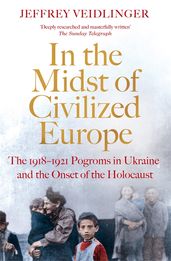
Acclaimed historian Jeffery Veidlinger shows for the first time how a wave of genocidal violence gripped Ukraine and Poland between 1918 and 1921, where unpunished attacks on Jewish families and communities set the conditions for the Holocaust twenty years later.
Drawing upon long-neglected archival materials, including thousands of newly discovered witness testimonies, trial records and official orders, Veidlinger uses riveting prose to explore and grapple with the horrors of the anti-Jewish pogroms in this important work.
You may also like
The best novels set in world war two, the 50 best history books of all time, 3 lessons i learnt from eddie jaku, survivor of auschwitz.
- Everyday Life in Concentration Camps
- All About Anne Frank's Family
- Great Movies About the Holocaust
- Famous Descendants of Survivors
- Haunting Pics from Inside the Camps
- Nazi Experiments on Human Beings
- After the Camps Were Liberated
- Elie Wiesel, Author and Survivor
- The Complicated Diary of a Young Anne Frank
- The Truth Behind Schindler's List
- People Who Tried to Help
- Documentaries You Need to See
- Stories That Will Inspire You
- Inspiring Stories About People Who Escaped
- Jewish Avengers: A Plan for Bloody Revenge
- Liberation of Concentration Camps
- How a Made-Up Disease Saved Lives
- The Saga of the MS St. Louis
The Best Books About The Holocaust
List of best books about the Holocaust, including jacket cover images when available. All these popular books on the Holocaust are sorted by popularity, so the highest rated books are at the top of the list. This well-researched Holocaust bibliography includes out-of-print titles and generally contains the most popular, famous, or otherwise notable books - fiction or non-fiction - about the Holocaust. If you're looking for a list of top books on the Holocaust then you're in the right place.
List books include All or Nothing, War and Genocide and more. You should be able to answer the question, "What are the best books about the Holocaust?" after checking out this list.
The Holocaust is a topic that both William Styron and Saul Friedländer have written books about, as have other fantastic authors.
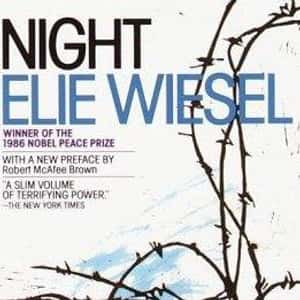
- Dig Deeper... The Best Selling Books of All Time
- # 9 of 43 on The 40+ Best Autobiographies Ever Written, Ranked By Readers
- # 130 of 271 on The Top Must-Read Books of All Time

The Diary of a Young Girl
- # 1 of 43 on The 40+ Best Autobiographies Ever Written, Ranked By Readers
- # 27 of 271 on The Top Must-Read Books of All Time

The Book Thief
- # 109 of 271 on The Top Must-Read Books of All Time
- # 80 of 437 on The Best Novels Ever Written
- # 82 of 329 on Books That Changed Your Life

Schindler's List

Born Survivors: Three Young Mothers and Their Extraordinary Story of Courage, Defiance, and Hope

The Hiding Place
Trending Topics:
- Say Kaddish Daily
- Healing service Mondays at 12:15 ET
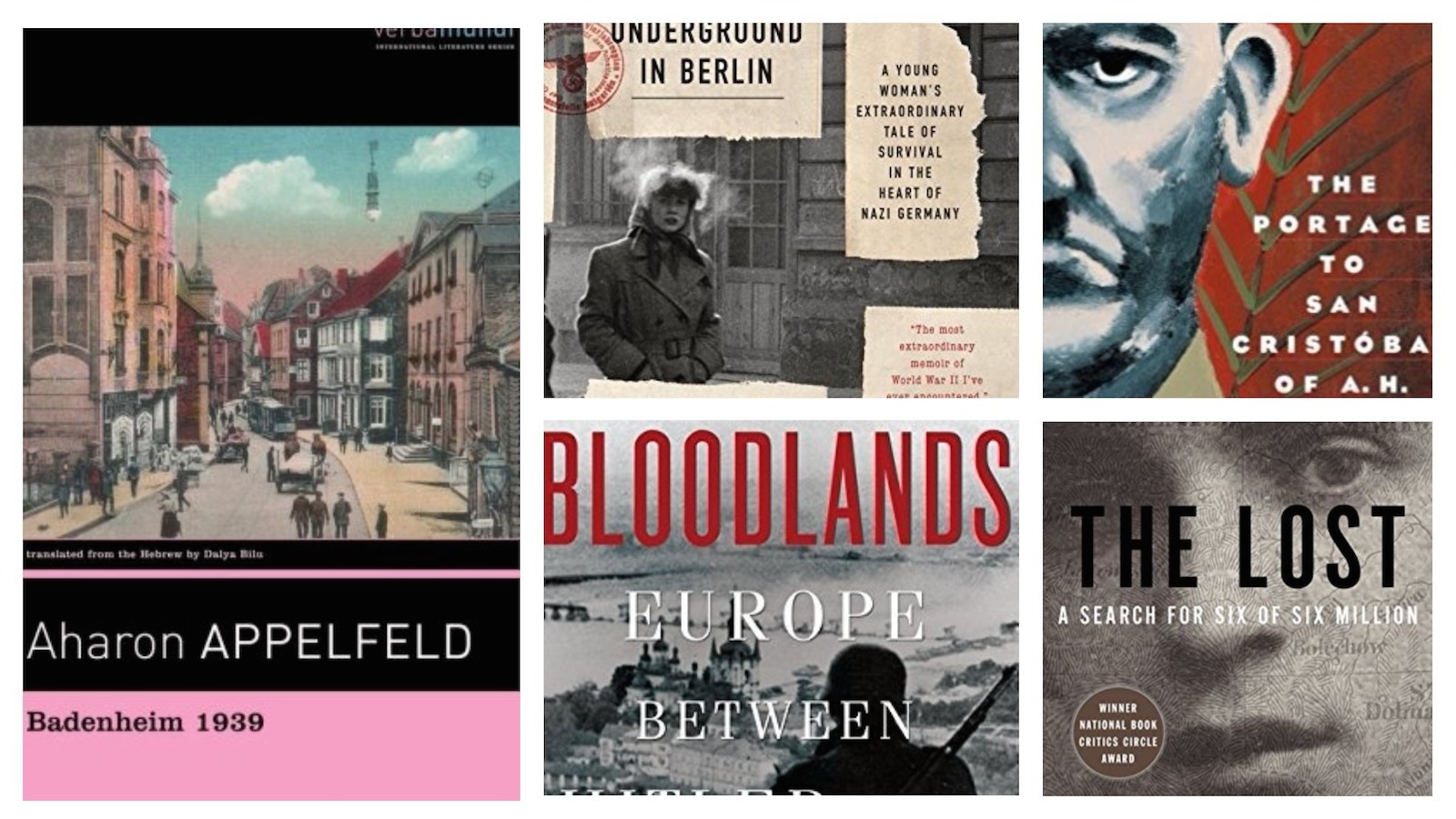
10 Holocaust Books You Should Read
Though not as well known as Anne Frank's diary or Elie Wiesel's works, these texts will increase your understanding of the Shoah.
By Zachary C. Solomon
When German philosopher Theodor Adorno famously said that “to write poetry after Auschwitz is barbaric,” he meant that there was no way aesthetics—or art—could live up to the barbarism of the Holocaust. Maybe he was right. But here are 10 lesser-known texts that can, at the very least, increase our understanding—and our empathy.
Badenheim 1939 by Aharon Appelfeld
One of the great Hebrew novels, Badenheim 1939 was beloved writer Appelfeld’s first novel to be published in English in 1980. It revolves around a fictional, mostly Jewish resort town in Austria, in which the Nazis, never explicitly mentioned, are disguised in the abstract as the “Sanitation Department,” a specter that drives the Jewish vacationers to distraction. Appelfeld was a survivor himself — and every word he wrote rings true.
Bloodlands: Europe Between Hitler and Stalin by Timothy Snyder
Yale historian Snyder’s 2010 book explores the messy intersection between Hitler’s Final Solution and Stalin’s vicious ideology that resulted in the deaths of an estimated 14 million people throughout Europe’s “bloodlands”: Poland, Ukraine, Belarus, Russia and the Baltics. Snyder’s hypothesis is profound, but simple: The Nazis weren’t just the “villains,” and the Soviets weren’t just the “heroes.” Rather, neither regime could have murdered as many as it did without the aiding and abetting of the other. An important history lesson often overlooked.
Eichmann in Jerusalem: A Report on the Banality of Evil by Hannah Arendt
A towering book by a towering figure, theorist and critic, Arendt’s most famous work chronicles Adolf Eichmann ’s 1961 trial in Jerusalem. Famous for the coining of the phrase “the banality of evil,” which refers to the moral and emotional detachment Eichmann displayed, this book is so much more: a dense, exploratory treatise on the nature of humanity.
Five Chimneys by Olga Lengyel
Lengyel was a surgical assistant in Transylvania when she was deported to Auschwitz; she was able to secure work in an infirmary, a job that ultimately saved her life. This 1946 memoir is an unflinching account of her time in that area, her interactions with Dr. Josef Mengele and her observations of the medical experiments performed on inmates. A deeply uncomfortable read, Lengyel’s memoir is a necessary living, breathing document.
King of the Jews by Leslie Epstein
Leslie Epstein’s greatest novel, this 1979 book gives a fictional account of Chaim Rumkowski, the Polish Jew appointed by the Nazis as the head of the Council of Elders (known as the Judenrat) in the Łódź Ghetto during the occupation of Poland. Rumkowski was seen as a villain, famous for his role in delivering children to the Nazis for extermination.
Ponary Diary, 1941-1943 by Kazimierz Sakowicz
In 1939, Sakowicz, a non-Jewish Polish newspaperman, moved to a cottage in the Lithuanian suburb of Ponary. From his backyard, through the trees, he could see a clearing. In that clearing, from 1941 to 1943, between 50,000 and 60,000 Jews were murdered by Nazis and their Lithuanian collaborators. Published in English in 2005, Sakowicz’s diary is the most unflinching record of death you will ever read—and the fact that he isn’t entirely sympathetic makes it all the more difficult.
The Lost: A Search for Six of Six Million by Daniel Mendelsohn
That this gripping story of memory and tragedy won both the 1996 National Jewish Book Award and the National Book Critics Circle award should clue you in to how extraordinary this book is. What begins, familiarly, as the story of a young boy learning about the tragic but mysterious fate of his relatives in the Holocaust, ends in a continent-spanning labyrinth, a sad and seductive tale of near mythic proportions.
The Portage to San Cristobal of A.H. by George Steiner
Easily the strangest book on this list, literary critic and philosopher Steiner’s experimental 1981 novella chronicles a revised history in which Hitler survives and goes into hiding for 30 years in the Amazon jungle. The novel caused a stir at the time, as Steiner lets Hitler speak for himself: Hitler’s argument that the existence of Israel is due to him, and that Jews should be thankful was, to say the least, a hard pill to swallow.
This Way for the Gas, Ladies and Gentlemen by Tadeusz Borowski
Introduced to the American public in the early 1960s by Philip Roth , Borowski’s spellbinding short story collection was based on the writer’s two-year incarceration at Auschwitz as a political prisoner. Borowski, who was a non-Jewish Polish journalist, provides a perspective on camp life quite different from the more common survivor narratives.
Underground in Berlin: A Young Woman’s Extraordinary Tale of Survival in the Heart of Nazi Germany by Marie Jalowicz Simon
On June 22, 1942, Simon had a choice: submit to the Berlin gestapo and face deportation, or run. She chose the latter. Underground in Berlin is, among other things, a fascinating portrait of the Berliners who helped Marie survive for the three years she spent hiding in plain sight using fake papers and a borrowed identity.

Join Our Newsletter
Empower your Jewish discovery, daily
Discover More
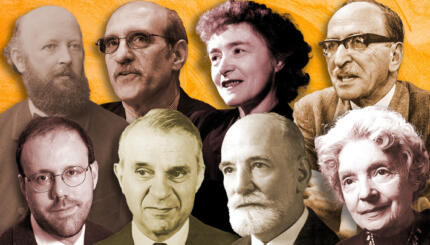
Jewish Culture
Eight Jewish Nobel Laureates You Should Know
These eight lesser-known Jewish Nobel laureates made groundbreaking contributions to science, culture and more.

Eight Famous Jewish Nobel Laureates
From Albert Einstein to Bob Dylan, there are many Jewish Nobel laureates who have become household names.
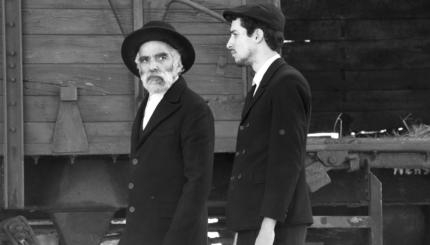
Seven Holocaust Films You Should See
These under-the-radar movies about the Shoah are affecting, powerful and nuanced.
The Greatest "Historical fiction, Holocaust" Books of All Time
Click to learn how this list is calculated.
This list represents a comprehensive and trusted collection of the greatest books. Developed through a specialized algorithm, it brings together 313 'best of' book lists to form a definitive guide to the world's most acclaimed books. For those interested in how these books are chosen, additional details can be found on the rankings page .
List Calculation Details
Historical fiction.
Historical fiction is a genre of literature that combines fictional stories with real historical events, settings, and characters. These books often take place in a specific time period and are based on research and factual information, but also include imaginative elements to create a compelling narrative. Historical fiction allows readers to experience the past in a unique and engaging way, while also providing insight into the social, cultural, and political issues of the time.
Reading Statistics
Click the button below to see how many of these books you've read!
If you're interested in downloading this list as a CSV file for use in a spreadsheet application, you can easily do so by clicking the button below. Please note that to ensure a manageable file size and faster download, the CSV will include details for only the first 500 books.
1. Schindler's List by Thomas Keneally

The book tells the true story of a German businessman who saves more than a thousand Polish Jews during the Holocaust by employing them in his factories. The protagonist's transformation from a greedy high living war profiteer to a savior of lives forms the crux of the narrative. It offers a chilling yet inspiring account of the horrors of the Holocaust, human resilience, and the power of one individual to make a significant difference.
2. Fateless or Fatelessness by Imre Kertész

"Fateless" is a harrowing account of a Hungarian Jewish boy's experiences in Nazi concentration camps during World War II. The protagonist is sent to Auschwitz, then Buchenwald, and finally to a factory in Zeitz, enduring brutal conditions and witnessing unimaginable horrors. Despite his experiences, he maintains a detached, almost indifferent perspective, focusing on the mundane aspects of life in the camps, which further highlights the absurdity and horror of the situation. The novel explores themes of identity, survival, and the arbitrary nature of fate.
3. If Not Now, When? by Primo Levi

This novel follows a band of Jewish partisans behind German lines during World War II. They are a diverse group from different countries and social backgrounds, all brought together by the common goal of sabotaging the Nazi war effort and surviving the Holocaust. The narrative explores their various experiences, the challenges they face, their acts of resistance, and their hopes for a future free from oppression. The title reflects the urgent necessity of their mission and their determination to fight back against their persecutors.
4. The Painted Bird by Jerzy Kosinski

"The Painted Bird" is a dark and harrowing novel set in Eastern Europe during World War II. The story follows a young, unnamed boy of unknown ethnicity who is sent by his parents to live in a remote village for safety. However, he is instead subjected to brutal violence, abuse, and superstition by the superstitious peasants. The book explores themes of survival, human cruelty, and the loss of innocence in the face of war and hatred.
5. Fugitive Pieces by Anne Michaels

"Fugitive Pieces" is a novel that explores the life of a Holocaust survivor who is rescued as a young boy by a Greek geologist. The boy grows up to become a poet and translator, haunted by his traumatic past and the loss of his family. The story also includes the perspective of a young professor who is obsessed with the poet's work, digging into the poet's past to understand his own life. The novel delves into themes of memory, loss, and the power of language.
6. The Boy in the Striped Pyjamas by John Boyne

This novel follows the story of a young boy who moves from Berlin to a house near a concentration camp during World War II. Unaware of the grim reality of his surroundings, he befriends another boy on the other side of the camp fence. The two develop a deep friendship despite the horrific circumstances, leading to a devastating and unforgettable ending.
7. The Shawl by Cynthia Ozick

"The Shawl" is a heartbreaking tale that follows the life of Rosa, a Holocaust survivor, who struggles with the traumatic memories of her past. The narrative is divided into two parts, the first set in a Nazi concentration camp where Rosa's baby daughter is brutally killed, and the second part set in Florida, decades later, where Rosa, now an old woman, still grapples with her painful past. The shawl in the story is a symbol of Rosa's lost daughter and her enduring grief.
8. Code Name Verity by Elizabeth Wein

"Code Name Verity" is a gripping historical fiction novel set during World War II. The story follows two best friends, a British spy and a pilot, as they navigate the dangerous world of espionage and warfare. When their plane crashes in Nazi-occupied France, their friendship and loyalty are tested as they face interrogation, betrayal, and the harsh realities of war. Through alternating perspectives and a complex web of secrets, the book explores themes of bravery, sacrifice, and the enduring power of friendship.
Create Custom User List
Filter by date range, filter by genre.
You can add additional genre filters below:
Filter by Country
Your favorite books, purchase this book, edit profile.
- Grades 6-12
- School Leaders
Get our FREE Classroom Seating Charts 🪑
13 Gripping Books That Teach About the Holocaust
Deepen awareness of the suffering incurred, as well as the courage and resilience expressed

In Germany, every school-age child must visit a concentration camp to learn about the horrors that occurred during Hitler’s reign. Through education, the goal is to prevent a repeat of the hatred and fear that led to the killings of over 6 million Jews, as well as many others considered less than human, by the Nazis. Reading both fictional and true accounts of young people who were impacted by the Holocaust provides a similar educational experience. Below are 13 gripping books about the Holocaust for young readers of all ages.
These titles are perfect for reading at any time throughout the year, especially surrounding the International Holocaust Day of Remembrance on January 27 or the U.S. Days of Remembrance which happen in April or early May. They help deepen awareness of the suffering incurred, as well as the courage and resilience expressed, during this tragic period in our world’s history.
Recommended for Ages 7–9
The butterfly by patrica pollaco.
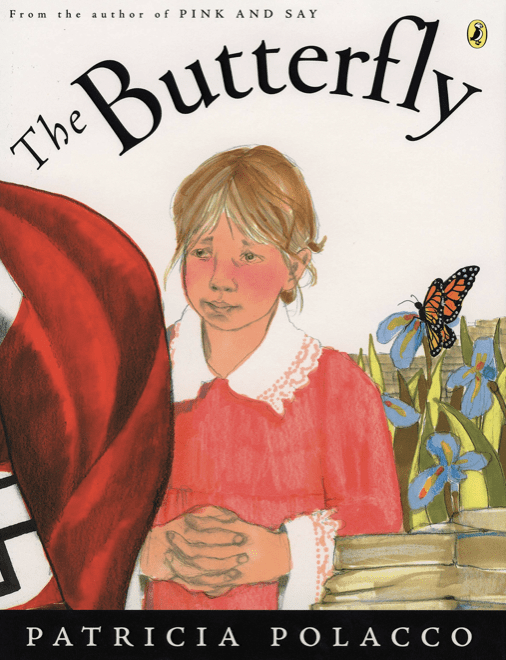
Set in a small village in Nazi-occupied France, a young girl named Monique believes that she sees a ghost in her room. She realizes that it’s a real girl, Sevrine, who is hiding from the Nazis. Full of beautiful artwork, this picture book by a prolific and beloved author makes this emotional and challenging topic engaging and relatable for younger readers.
Buy it: The Butterfly on Amazon
I Survived the Nazi Invasion, 1944 (#9) by Lauren Tarshis
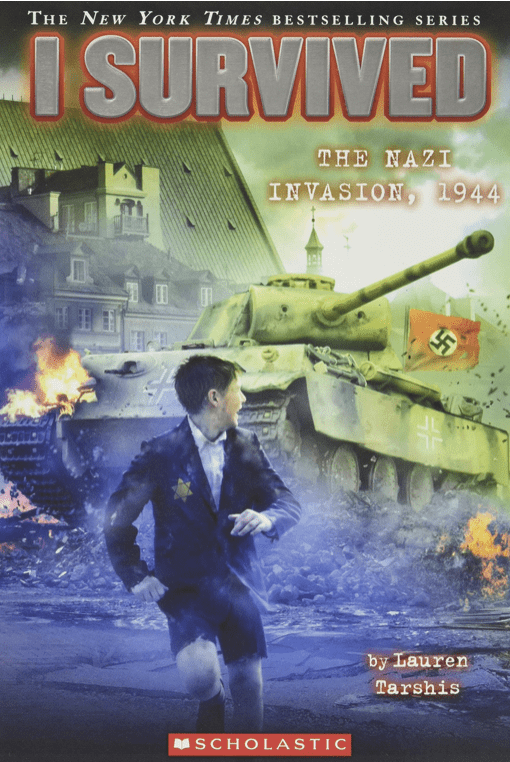
This bestselling historical fiction story effectively captures the darkness as well as the glimmers of light from this time period. After the Nazis take their father, Max and his sister Zena become stranded in a Jewish ghetto. This is a heart-pounding tale of survival and resilience.
Buy it: I Survived the Nazi Invasion on Amazon
Lisa of Willesden Lane: A True Story of Music and Survival During World War II by Mona Golabek and Lee Cohen
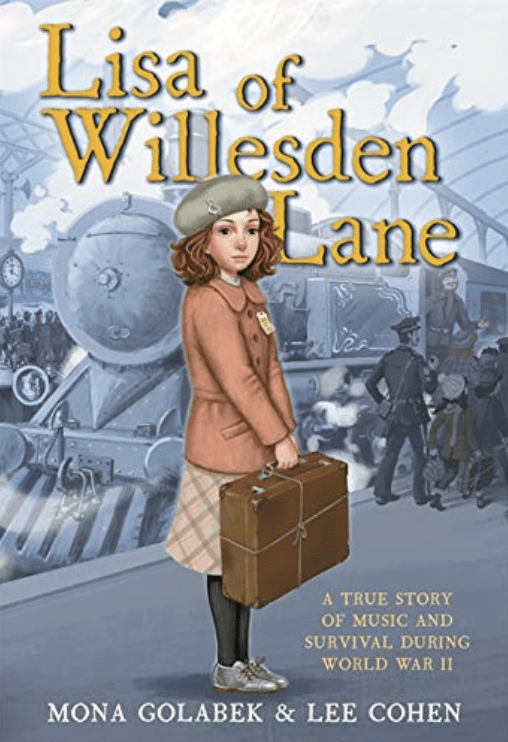
Lisa is a young musical prodigy living in Vienna before the start of World War II. As Austria becomes unsafe for Jewish families like hers, her parents make the difficult decision to use their only safe passage ticket to send her to London. Leaving behind her siblings and parents is only bearable because she is able to share her music with the other refugees. This story offers an important perspective on the impact of the Holocaust on those who escaped and shows the power of music to uplift the world.
Buy it: Lisa of Willesden Lane: A True Story of Music and Survival During World War II on Amazon
Maurice and His Dictionary by Cary Fagan and Enzo Lord Mariano
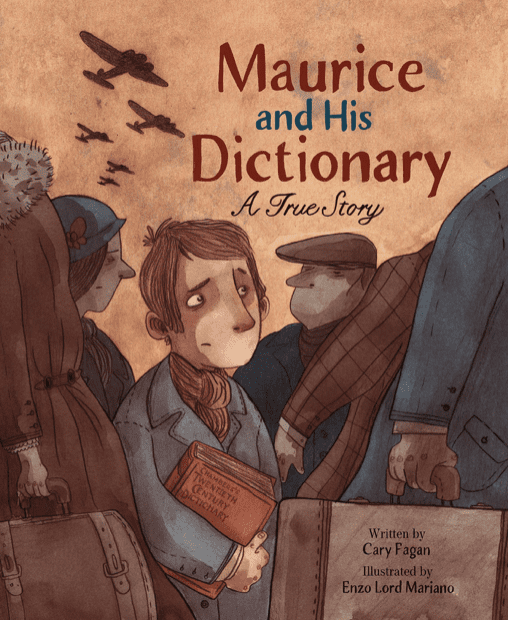
This graphic novel weaves humor and sadness together to share the story of Maurice and his family as they flee from Belgium through multiple European countries, eventually landing as refugees in an internment camp in Jamaica. Maurice keeps his beloved dictionary close to him as he strives to continue his education no matter where he is living. A tribute to the spirit of resilience and determination expressed by those forced to create new lives in new countries due to the terror of the Nazis.
Buy it: Maurice and His Dictionary on Amazon
Recommended for Ages 9–13
Hidden: a child’s story of the holocaust by loic dauvillier, marc lizano, and greg salsedo.
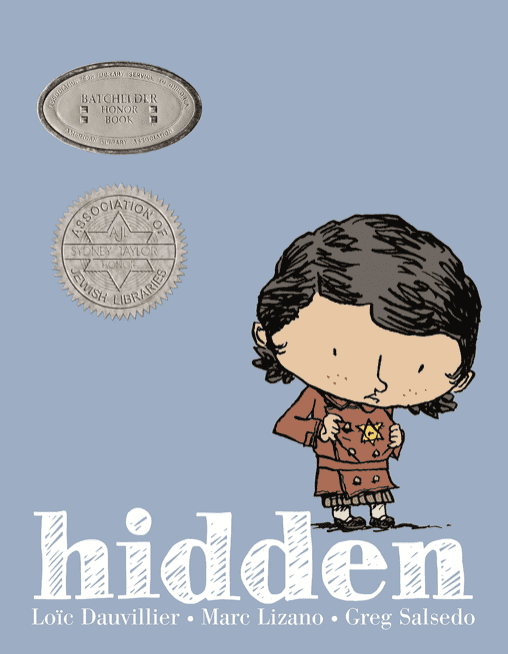
One night when Elsa and her grandmother Dounia can’t sleep, Dounia shares her experiences as a young Jewish girl living in Paris during the Nazi regime. Neighbors and friends hide her after Nazis send her parents to a concentration camp. Horrific historical events are softened through beautiful illustrations and a gentle, touching writing style in this critically acclaimed graphic novel.
Buy it: Hidden: A Child’s Story of the Holocaust on Amazon
Number the Stars by Lois Lowry
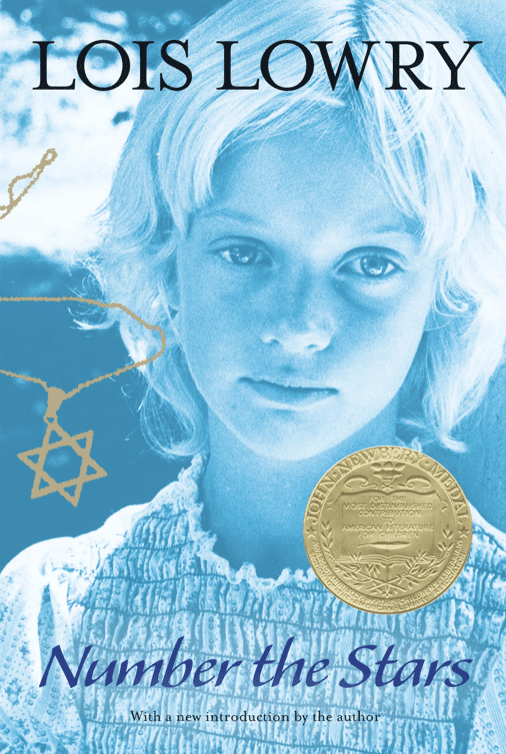
The power of the Danish Resistance to stand up against the darkness of the Nazis is highlighted in this Newbery Award–winning classic. The family of 10-year-old Annemarie offers to care for her Jewish best friend, Ellen Rosen, to keep her from being taken by Hitler’s soldiers. But can they truly protect her? This captivating, suspenseful story shows the trials and tribulations experienced by young people during this time.
Buy it: Number the Stars on Amazon
Projekt 1065 by Alan Gratz
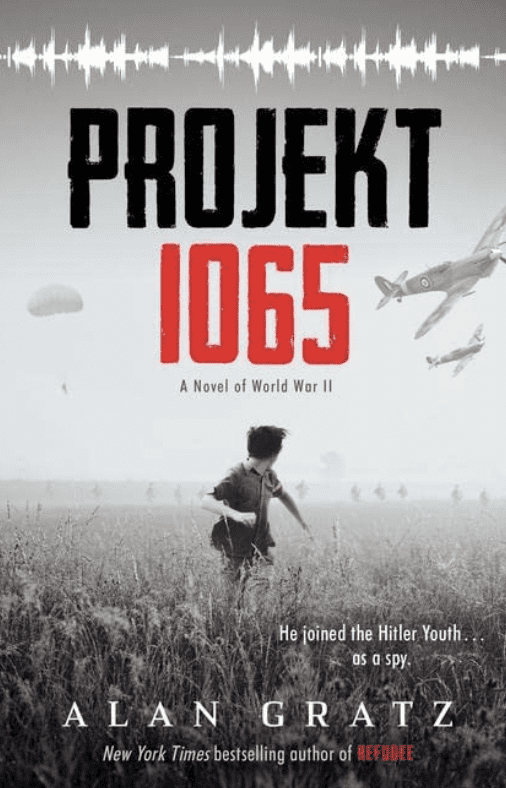
In this story, the character Michael O’Shaunessey, the son of the Irish ambassador to Germany, tells the story from his point of view. Like all German youth, the Hitler Youth movement forces him to join them. But he has a secret: He is a spy for the Allies. He risks everything in hopes of the Nazis not discovering him before completing his mission. This riveting story offers a unique perspective into the horrific actions that Nazis brainwashed young people in Germany to commit under the guise of loyalty.
Buy it: Projekt 1065 on Amazon
Resistance by Jennifer Nielsen
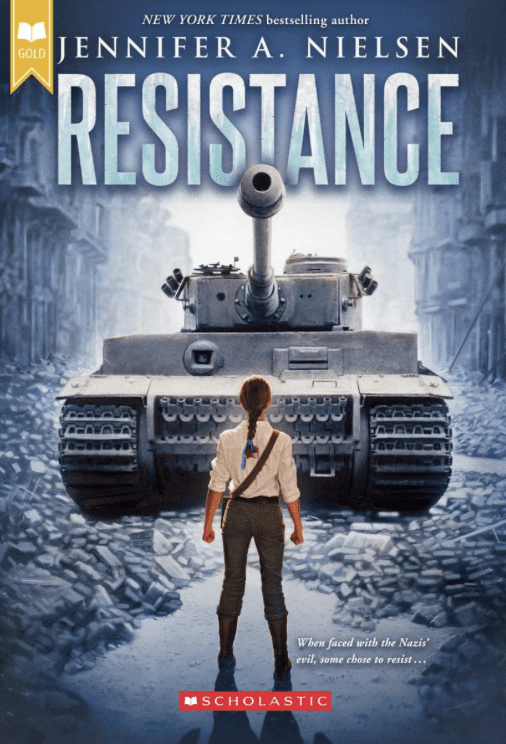
Chaya, a Jewish teenager living in Poland, loses her siblings to the Nazis. As a result, she wants to make a difference in the fight against the enemy soldiers. She serves as a courier delivering messages between Jews and then joins a resistance cell. She finds herself immersed in the dangerous battles of the Warsaw Ghetto. This is an intense and spellbinding historical fiction book about the Holocaust that shows the power of courage and perseverance, no matter what your age.
Buy it: Resistance on Amazon
Recommended for Ages 13 and Up
Anne frank: diary of a young girl by anne frank.
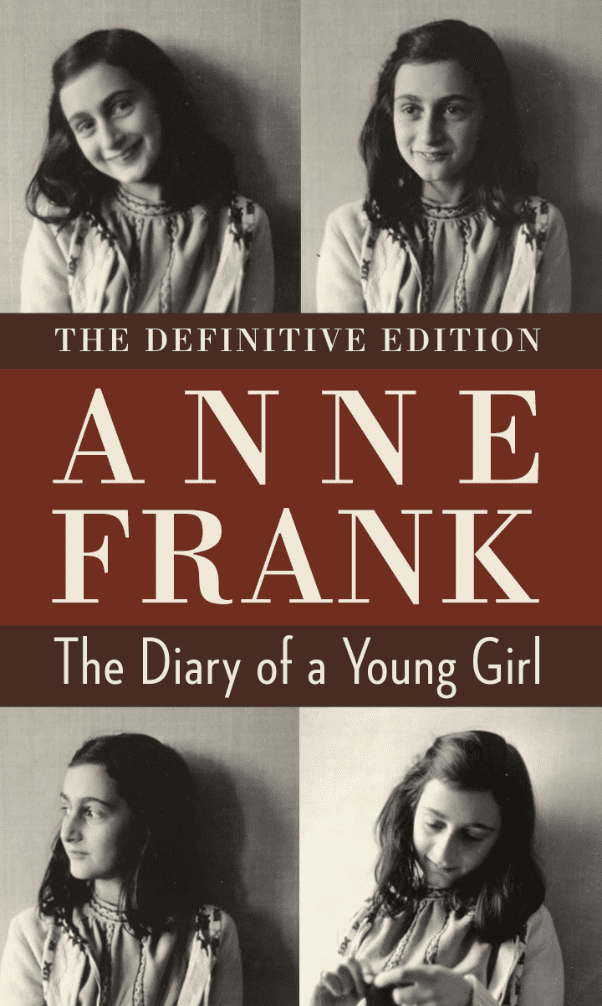
First published in 1947, this memoir is one of the most well-known books about the Holocaust. It helps readers understand the horrors of the Holocaust through the lens of a young Jewish girl living in Nazi-occupied Amsterdam. This compilation of Anne’s real diary entries from ages 13 to 15 chronicles both her experiences and emotions while hiding in the Secret Annex with her family for two years before the Nazis discovered them. Her memoir captures moments filled with fear. In addition, Anne reflects on the touching and even humorous times of a traumatic situation and the more relatable ups and downs of adolescence.
Buy it: The Diary of a Young Girl: The Definitive Edition on Amazon
The Book Thief by Marcus Zusak
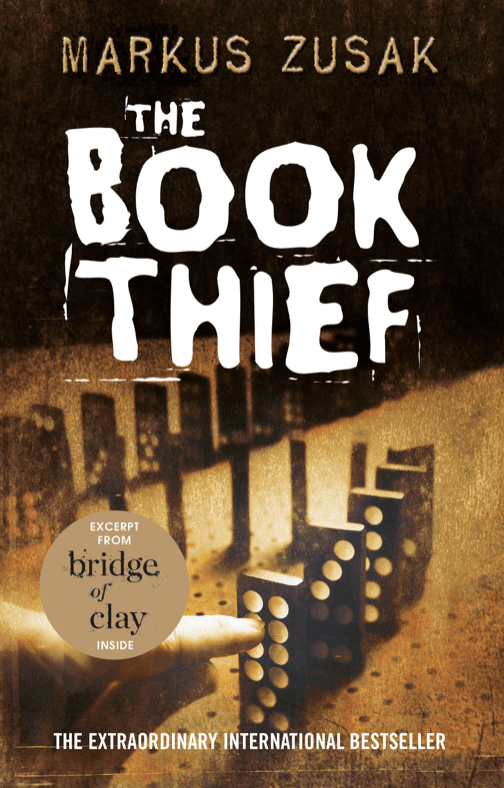
Death itself narrates this timeless classic. A mother gives her young Jewish daughter, Liesel, to a poor German family in an attempt to save her life during World War II. Liesel steals books that Nazi supporters plan to burn. Despite the trauma of her current life, the books become a source of hope for her and those that she shares them with. A beautifully crafted and emotionally gripping fictional story layered with accurate, historical details, this exemplifies some of the best books about the Holocaust.
Buy it: The Book Thief on Amazon
The Nazi Hunters: How a Team of Spies and Survivors Captured the World’s Most Notorious Nazi by Neal Bascomb
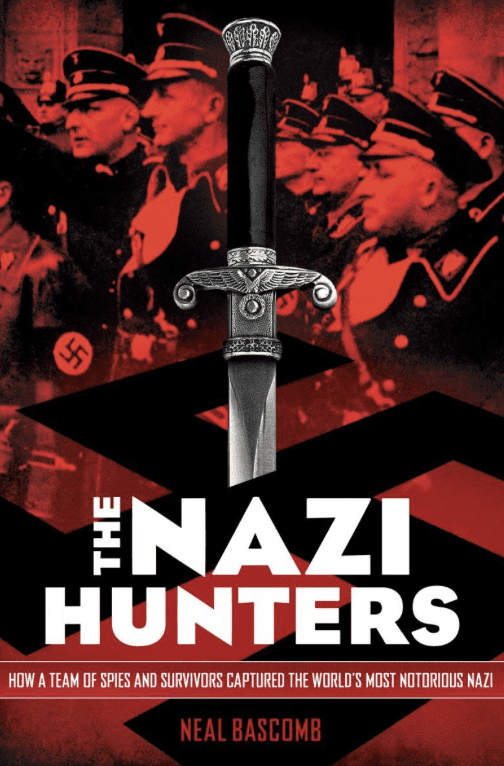
This setting of this narrative nonfiction book is 15 years after the end of World War II. It shares the true story of a group of Israeli spies who captured Adolf Eichmann, one of the most notorious Nazis, who fled to Argentina to escape punishment after the war. This young reader adaptation humanizes the characters and provides a pulse-pounding, unforgettable story about a lesser-known perpetrator of the Holocaust.
Buy it: The Nazi Hunters: How a Team of Spies and Survivors Captured the World’s Most Notorious Nazi on Amazon
Night by Elie Wiesel
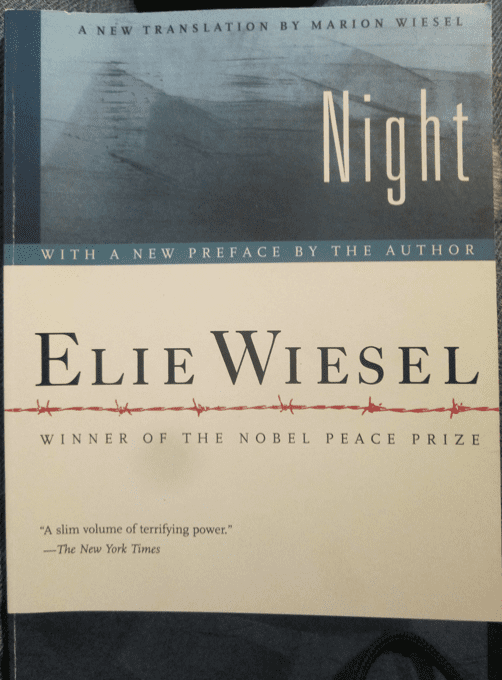
Nobel Peace Prize winner Elie Wiesel shares his firsthand account of living in the Nazi death camps as a teenager. His retelling of the horrific experiences he endured is eye-opening. It also shows the depth of emotions, from guilt and shame to gratitude and joy, felt by survivors like him. This is one of the most powerful books about the Holocaust and is a part of many high school curricula. This is a must-read for any young adult or grown-up as one of the best books about the Holocaust.
Buy it: Night on Amazon
This Rebel Heart by Katherine Locke
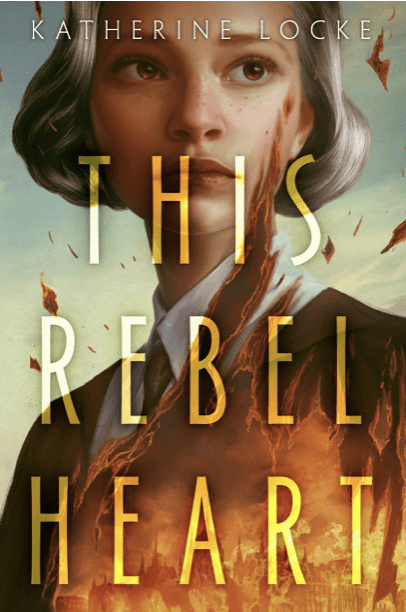
This is one of the books about the Holocaust that provides a glimpse into the aftermath in Eastern Europe. Csilla is a Hungarian Jew living in Budapest in 1956. Her country was torn apart by the war, by Stalin, by the Soviets, as well as its own people. Yet she loves her city. However, her past is complicated. Her beloved father was persecuted for sins he didn’t commit as a Jew. Then he was exonerated despite sins he committed as a Communist Party leader. Elements of Jewish mysticism and other fantastical religious figures are woven into this gripping story about rebellion, cultural identity, and life’s purpose.
Buy it: This Rebel Heart on Amazon
Looking for books for middle schoolers? Check out our list of the Best Books for Middle Schoolers .
Want even more articles subscribe to our newsletters , you might also like.

60 Refreshing and Relatable Books To Teach in Middle School
Plus a free printable middle school reading list. Continue Reading
Copyright © 2024. All rights reserved. 5335 Gate Parkway, Jacksonville, FL 32256
In the News
- Israel-Hamas War Live Updates
- Hostage Deal
- Mohammed Deif
- Religious-Zionists
- Israeli Hostages
- Israelis Dead
The 7 Best New Books About the Holocaust, as Recommended by Scholars
The seven best include an examination of theories trying to explain the Holocaust and a look at how Hitler saw Islam as a religion that could be exploited for anti-Semitic purposes
From Anne Frank’s diary to Elie Wiesel’s “Night,” books about the Holocaust remain some of the most powerful and well-known pieces of literature published in the past century. Books have the power to educate about the Shoah’s unimaginable horrors and bring to life the stories of its victims, as well as unearth hidden details about wartime crimes.
Israel at War, Day 282: IDF Confirms Killing Commander of Hamas' Khan Yunis Brigade
Israeli government set to extend mandatory military service for men to three years, trump and deif share a lot more than attempted assassinations, deif's 'death': how israel's assassination attempt could deliver a gaza cease-fire, a mutation making some european jews hiv resistant is also really bad news, learn how to optimize your home solar system, israel seized 26% of gaza. now, jewish settlers see their chance, what has anne frank got to do with the gaza war, dr. ruth still has plenty to say about your sex life, jewish, gay, anti-zionist: the assassination that rocked palestine, how netanyahu has systematically foiled talks to release hostages from hamas captivity, in his retirement speech, israel's top officer in the west bank revealed the hidden truth.

Agnes Tennenbaum Holocaust Library Collection: Book Titles by Authors A-D
- Finding Books
- Book Titles by Authors A-D
- Book Titles by Authors E-G
- Book Titles by Authors H-J
- Book Titles by Authors K-L
- Book Titles by Authors M-P
- Book Titles by Authors Q-S
- Book Titles by Authors T-Z
- Encyclopedias & Periodicals
- Books for Youth
- Resources for Educators
- Papers & Miscellaneous Items
- New Additions
- HY 347: The Holocaust This link opens in a new window
- Maus Resources This link opens in a new window
Selected Titles
More Titles A-D
- Abzug, Robert H. America Views the Holocaust, 1933-1948
- Amishai-Maisels, Ziva, Depiction and Interpretation: the Influence of the Holocaust on the Visual Arts
- Anne Frank House. Anne Frank in the World
- Apensziak, Jacob, The Black BOok of Polish Jewry
- Appleman-Jurman, Alicia. Alicia
- Arad, Yitzhak : Belzec, Sobibor, Treblinka: Operation Reinhard
- Arad, Yitzhak. Documents on the Holocaust
- Arendt, Hannah. Eichmann in Jerusalem: A Report on the Banality of Evil
- Arnold, Elliot. A Night of Watching
- Authers, John. The Victim's Fortune
- Avinun,Sara: Rising from the Abyss
- Balakian, Pete. The Burning Tigris
- Baldwin, Neil. Henry Ford and the Jews
- Balson, Ronald H. Once We Were Brothers
- Banki, Judith H. Ethics in the Shadow of the Holocaust: Christian and Jewish Perspectives
- Bankier, David. Expulsion and Extermination: Holocaust Testimonials
- Bankier, David Probing the Depths of German Antisemitism
- Bannister, Nanna. The Secret Holocaust Diaries: The Untold Story of Nonna Bannister
- Barak -Ressler, Aliza. Cry Little Girl: A Tale of the Survival of a Family in Slovakia
- Barnett, Victoria J. Bystanders: Conscience and Complicity during the Holocaust
- Barnouw, David. The Diary of Anne Frank
- Bartov, Orner. Erased: Vanishing Traces of Jewish Galicia in Present-Day Ukraine
- Basok Dr Ch. M. The Stetl of Moshe Bernstein
- Bau, Joseph. Dear God, Have You Ever Gone Hungry?
- Bauer, Yehuda. A History of the Holocaust
- Bauer, Yehuda. Jewish Reactions to the Holocaust
- Bauer, Yehuda. Rethinking the Holocaust
- Bauer, Yehuda. The Death of the Shtetl
- Bauman, Zygmunt. Modernity and the Holocaust
- Beasley, Nancy Wright. lzzy's Fire: Finding Humanity in the Holocaust
- Beer, Edith Hahn. The Nazi Officer's Wife: How One Jewish Woman Survived the Holocaust
- Bemporad, Jack. Good and Evil After Auschwitz: Ethical lmplications for Today
- Ben-Dor, David. The Darkest Chapter
- BenGershom, Ezra. David: Testimony of a Holocaust Survivor
- Benski, Stanislaw. Missing Pieces: Stories
- Berg, Mary. The Diary of Mary Berg: Growing Up in the Warsaw Ghetto
- Bergen, Doris L. Twisted Cross: The German Christian Movement in the Third Reich
- Berger, David. History and Hate: The Dimensions of Anti-Semitism
- Bernard, Jean. Priestblock 25487
- Bernstein, Sara Tuvel. The Seamstress: A Memoir of Survival
- Beschloss, Michael. The Conquerors: Roosevelt, Truman, and the Destruction of Hitler's Germany, 1941-1945
- Bikales, Gerda. Through the Valley of the Shadow of Death: A Holocaust Childhood
- Bitten-Jackson, Livia. My Bridges of Hope
- Black, Edwin. IBM and the Holocaust: The Strategic Alliance befween Nazi Germany arid America's Most Powerful Corporation
- Black, Edwin. Nazi Nexus: America's Corporate Connections
- Blaichman, Frank. Rather Die Fighting: A Memoir of World War II
- Blet Pierre, S.J. Pius XII and the Second World War
- Block, Gay. Rescuers: Portraits of Moral Courage in the Holocaust
- Blum, Howard. Wanted!: The Search for Nazis in America
- Blum, Jenna. Those Who Save Us
- Boas, Jacob. We Are Witnesses: Five Diaries of Teenagers Who Died in the Holocaust
- Bondy, Ruth. Trapped: Essays on the History of the Czech Jews, 1939-1945
- Borowski, Tadeusz. This Way for the Gas, Ladies and Gentlemen
- Braham, Randolph L. The Vatican and the Holocaust: The Catholic Church and the Jews during the Nazi Era
- Brandsdorfer, Louis. The Bleeding Sky: My Mother's Journey through the Fire
- Brecher, Elinor J. Schindler's Legacy: True Stories of the List Survivors
- Breitman, Richard. Official Secrets: What the Nazis Planned, What the British and Americans Knew
- Bretholz, Leo. Leap into Darkness: Seven Years on the Run in Wartime Europe
- Brinkman et al, eds. Learning from History (book & CD-ROM)
- Brown, Jean E. Images from the Holocaust: A Literature Anthology
- Browning, Christopher. Ordinary Men: Reserve Police Battalion 101 and the Final Solution in Poland
- Browning, Christopher R. Remembering Survival: Inside a Nazi Slave-Labor Camp
- Browning, Christopher R. The Origins of the Final Solution
- Browning, Christopher R. The Path to Genocide: Essays on Launching the Final Solution
- Bullock, Alan. Hitler: A Study in Tyrany
- Caplan, Marc. Holocaust Denial: A Pocket Guide
- Cargas, Harry James. Problems Unique to the Holocaust
- Cargas, Harry James. When God and Man Failed: Non-Jewish Views of the Holocaust
- Cesarani, David. 'Bystanders' to the Holocaust: A Re-Evaluation
- Chiger, Krystyna. Girl in the Green Sweater: A Life in Holocaust's Shadow
- Chodakiewicz, Marek Jan. After the Holocaust: Polish-Jewish Conflict in the Wake of World War II
- Cohen, Felice. What Papa Told Me
- Cohen, Kate. The Neppi Modona Diaries: Reading Jewish Survival
- Cohen, Rich. The Avengers
- Cohn-Sherbok, Dan. Holocaust Theology
- Conot, Robert E. Justice at Nuremberg
- Cornwell, John. Hitler's Scientists: Science, War, and the Devil's Pact
- Cymet, David. History vs. Apologetics: The Holocaust, the Third Reich, & the Catholic Church
- Cymlich & Strawczynski. Escaping Hell in Treblinka
- Cyprys, Ruth Altbeker. A Jump for Life: A Survivor's Journal
- Dachau Museum. Concentration Camp Dachau 1933-1945
- Daitch, Frances. Frejda's Story
- Dalin, Rabbi David, The Myth of Hitler's Pope
- Darring, Gerald. Christians, Jews, and the Holocaust: Theses for Dialogue
- Darring, Gerald. Dead Even Before Death: The Holocaust and the Human Person
- Darring, Gerald. Jewish Experiences of the Holocaust: In Their Own Words
- Dawidowicz, Lucy S. The Holocaust and the Historians
- Dawidowicz, Lucy S. The War Against the Jews
- de Wijze, Louis. Only My Life: A Survivor's Story
- Denes, Magda. Castles Burning
- Des Pres, Terrence. Survivor: An Anatomy of Life in the Death Camps
- Desbois, Father Patrick The Holocaust by Bullets
- Diamant, Anita. Day after Night
- Distel, Barbara. The Dachau Concentration Camp 1933-1945
- Dittman, Anita. Trapped in Hitler's Hell: A Young Jewish Girl Discovers the Messiah's Faithfulness in the Midst of the Holocaust
- Dobroszycki, Lucjan. The Chronicle of the Lodz Ghetto 1941-1944
- Doerry, Martin. My Wounded Heart: The Life of Lilli Jahn, 1900-1944
- Dulles, Avery, S.J. The Holocaust, Never to Be Forgotten
- Dwork, Deborah. Voices & Views
- Dwork, Deborah. Auschwitz
- Dwork, Deborah Agnes. Children with a Star: Jewish Youth in Nazi Europe
- Dwork, Deborah. Holocaust: A History
- Dwork & Van Pelt. Flight from the Reich: Refugee Jews, 1933-1946
- << Previous: Finding Books
- Next: Book Titles by Authors E-G >>
- Last Updated: Jun 25, 2024 9:26 AM
- URL: https://libguides.southalabama.edu/agnestennenbaumholocaustcollection
Trailblazing Sex Therapist Ruth Westheimer Dies at 96
Trailblazing sex therapist ruth westheimer (ed.d. ’70) dies at 96, one of the college’s most prolific alumni, dr. ruth helped reshape the public discourse on sex — and set the stage for culture as we know it.
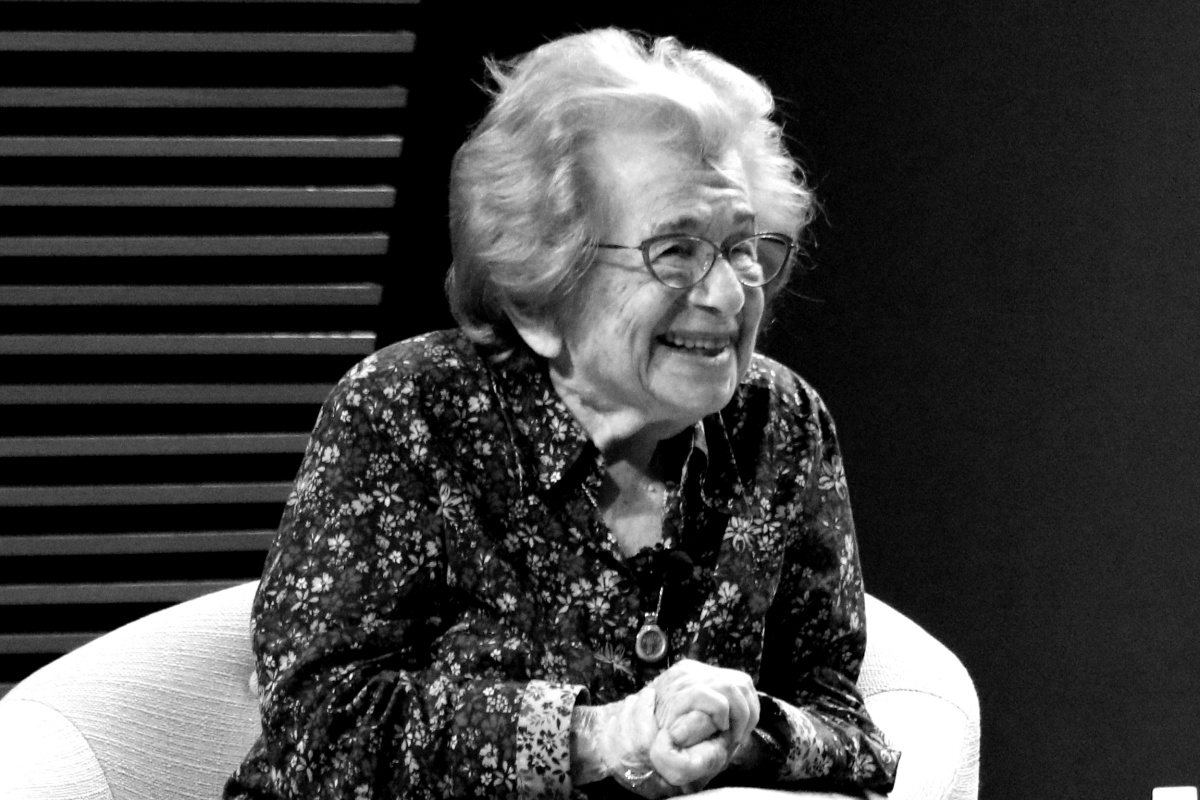
Dr. Ruth Westheimer — the orphan of the Holocaust, behavioral therapist, author and talk show host credited with easing conversations around sex — died on Friday, July 12, 2024 in Manhattan at the age of 96.
Serendipity brought Westheimer to the public fold when a sex education presentation led her to hitting New York City radio airwaves with her own program, eventually leading to the nationally syndicated Sexually Speaking in 1984 and her popular television programs, which paved the way for other notable psychologists in media over the next several decades.
Described as “revolutionary” by the New York Times , the icon – known publicly as simply Dr. Ruth – was credited with offering unprecedented insight on the historically neglected female orgasm; providing critical, fact-based information on HIV/AIDS during the height of the crisis when stigma and misinformation prevailed; and normalizing healthy discussion of sex among the general population.
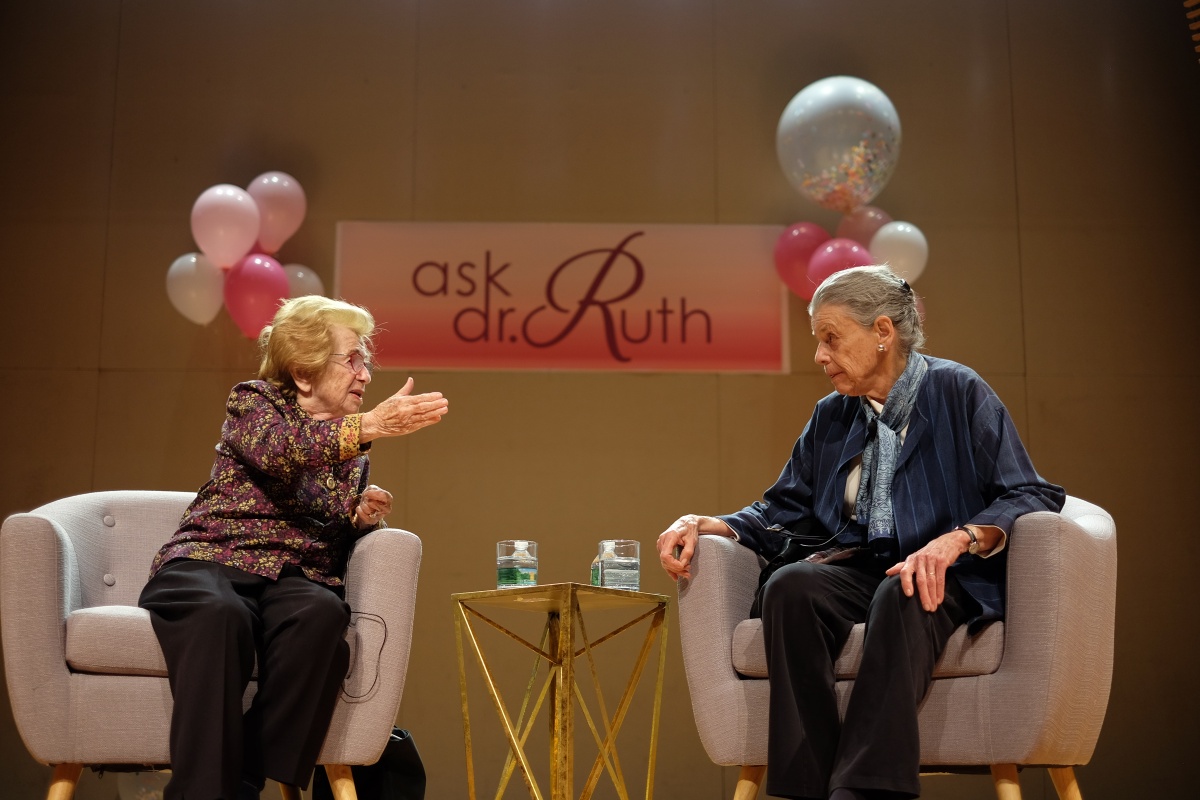
Westheimer in conversation with friend and colleague Hope Leichter at the TC premiere of her documentary, Ask Dr. Ruth , at the College's Cowin Center in 2019. (Photo: TC Archives)
“With remarkable humor and empathy, Ruth empowered the public through her unprecedented and vulnerable approach to discussing sex,” President Thomas Bailey said. “Over decades of work and friendship at the College, we have borne witness to the consequential nature of Ruth’s work – as her vision for a more healthy, open and equitable society continues to unfold. She will be deeply missed.”
An ambitious schedule of television, radio and personal appearances notwithstanding, Westheimer still managed to author or co-author more than 46 books including two autobiographies, pop-up books for children, a handbook for Alzheimer's caregivers, and human sexuality tomes for every age group. At the height of her popularity, approximately 3,000 callers would attempt to get advice from the beloved expert – nicknamed “Grandma Freud” – during her weekly TV program.
“Sex is not only about intercourse and orgasms. The important thing is the companionship, and the friendship, and the knowledge that this is the person I can talk to and I can share my life with,” Westheimer told the McGill Reporter in 2015. “I meet so many people who tell me that I helped save their life or that I helped them when they were having difficulties. That’s very rewarding.”
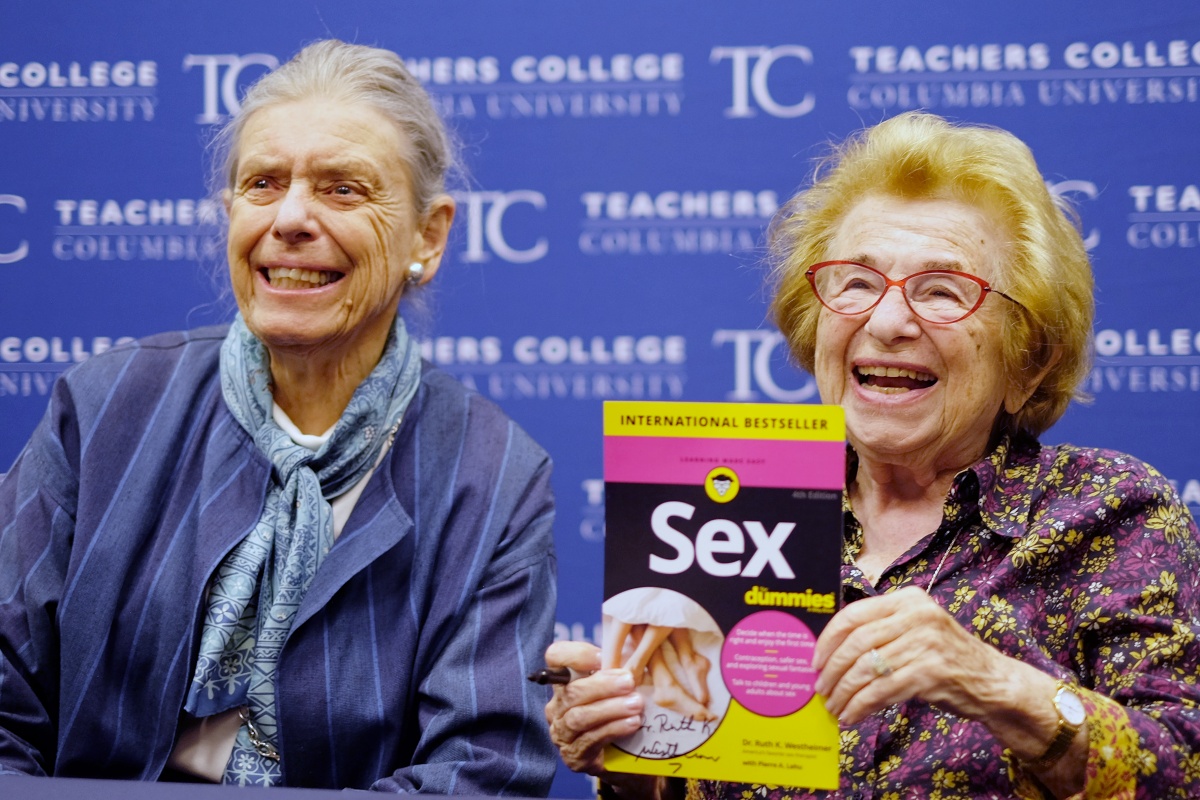
Westheimer poses with Sex for Dummies at her TC book signing in 2019. (Photo: TC Archives)
President Thomas Bailey and Westheimer in 2019. (Photo: TC Archives)
Westheimer at the wedding of Terry Cosentino and TC’s Tom Rock, Associate Vice President & Chief Student Affairs Officer. (Photo courtesy of Rock)
A dedicated alumna and friend of Teachers College, Dr. Ruth imparted her wisdom while teaching at TC as an adjunct faculty member. She was honored with the Distinguished Alumni Award in 1991, and the Medal for Distinguished Service – TC’s highest honor – in 2006.
“Teachers College has an important place in my heart,” Westheimer said in 2013. “Every year, I come and talk to those students who have been accepted to other universities and to Teachers College. With my expertise in human sexuality,” she joked, “I tell them that whoever comes to Teachers College is going to have good sex for the rest of their lives.”
Westheimer’s service on the Teachers College faculty was defined by her commitment to cultivating knowledge and zest for life. “A treasured member of our community for more than 50 years, Dr. Ruth leaves an indelible impact on Teachers College, and the many psychologists, health educators and other scholars who follow in her stead,” said KerryAnn O’Meara, Vice President for Academic Affairs, Provost and Dean of the College. “Through her teaching and writing, Ruth gave her students the tools needed to help others live happier, healthier lives. Ruth’s joie de vivre — one of her favorite terms — lives on in them.”
Born Karola Ruth Siegel on June 4, 1928 in the Bavarian town of Karlstadt am Main, Westheimer was sent to live at a Swiss orphanage at age 10 as her Jewish parents became increasingly concerned for their safety in Nazi-ruled Germany.
Julius and Irma Siegel later perished in the Holocaust along with Westheimer’s grandparents and other members of her extended family. The trauma of her formative years set the mold for the educator and mental health professional destined to become a household name.
“I realize if I had been in Belgium or France, I wouldn't be here,” she said in a 2019 interview with Hope Leichter, TC’s Elbenwood Professor of Education. “So that fact of having been saved has made me have an obligation to help others. And that is why going into the helping profession was the right thing for me.”

Dr. Ruth in 2013. (Photo: Shannon Taggart)
Her formal education interrupted by World War II, Westheimer lived in Israel and Palestine, and would later travel to Paris to study psychology at the Sorbonne. She migrated to the U.S. in 1956, supporting herself as a housekeeper while pursuing a graduate degree in sociology from The New School.
In the prelude to her prominence in media, Westheimer taught at the college-level, practiced as a psychologist, and worked at Planned Parenthood in various positions that demanded honest and open discussions about sex. Her work for Planned Parenthood led her to study human sexuality under Dr. Helen Singer Kaplan at what is now NewYork-Presbyterian/Weill Cornell Medical Center. Westheimer would later teach there as an adjunct in addition to her positions at Teachers College, New York University, Lehman College and Brooklyn College. She later held numerous fellowships at Yale’s Calhoun College, the New York Academy of Medicine and Princeton’s Butler College, where she also taught.

Westheimer in 1988. (Photo: Wikimedia Commons)
“When you get into sex education, there’s a divide between helping people and just saying things that titillate. It can be a wavy line,” said Leichter, who served as Westheimer’s thesis adviser during her time at TC, in 2013. “But for Ruth, being a sex therapist is a way of being joyous. She has a serious message, about contraception and the importance of relationships and family. But she’s had a very tough life, and what she does is all about asserting her power to overcome and move beyond.”
Vanity Fair in 2009 cited Westheimer in naming her one of “Twelve Women Who Changed the Way We Look at Sex,” joining a list that included Margaret Sanger, Madonna, Alice Walker and Marilyn Monroe.
“Words like ‘erectile dysfunction’ and ‘vagina’ don't exactly slip off the tongue,” Vanity Fair wrote. “But Dr. Ruth, as she was publicly known, had a way of talking about them that felt natural, even soothing.”
At each turn TC remained central to Westheimer's life. She returned as an adjunct to teach courses on “Families, Television and Other Media;” made regular presentations to Academic Festival for alumni and Reimagining Education Summer Institute participants; and championed the College as a supporter, including by bolstering financial assistance to students through the Dr. Ruth Westheimer Scholarship Fund , created in 2001.
Westheimer was featured in "The Makers: Women Who Make America" a documentary on the women's movement that aired on PBS. Her life was adapted into the critically-acclaimed stage play, Becoming Dr. Ruth , in 2013. In 2019, the documentary Ask Dr. Ruth premiered on Hulu and would later receive a Critics Choice Award. Westheimer is also a recipient of an Ellis Island Medal of Honor for her contributions to the United States as an immigrant; the New York City Mayor's Liberty Award; and honorary degrees from Ben-Gurion University and Lehman University, among others. In 2022, she was honored for her contributions to and service of Fort Tryon Park as a Washington Heights resident with the Dr. Ruth Tulips.
In her later years, Westheimer has remained an active participant in the Jewish community – through her own synagogues and as a voice standing against antisemitism on the world stage. In 2015, she was honored by the New York City Council as part of Jewish Heritage Month for her contributions.
Westheimer took on a new role in 2023 when she was appointed as New York’s Loneliness Ambassador by Gov. Kathy Hochul, who created the role in response to Westheimer’s eagerness to address what she described as an epidemic.
“Let’s go and see how we can help people who don’t have a sexual problem,” Westheimer told the New York Times . “I don’t want to be known only as a sex therapist. I want to be known as a therapist.”
While a titillating subject vaulted Westheimer to fame, her underlying message remained practical and wise.
“Remember, attraction is only part of a relationship,” Westheimer mused. “Loyalty, commitment, responsibility and maturity make up the rest.”
Westheimer was predeceased by her late husband, Fred, to whom she was married for 36 years until his death in 1997. She is survived by her two children, Joel and Miriam (Ed.D. ’90), and four grandchildren.
— Steve Giegrich and Morgan Gilbard
Tags: In Memoriam Alumni Counseling & Clinical Psychology Psychology
Programs: Counseling Psychology
Departments: Counseling & Clinical Psychology
Published Saturday, Jul 13, 2024
Teachers College Newsroom
Address: Institutional Advancement 193-197 Grace Dodge Hall
Box: 306 Phone: (212) 678-3231 Email: views@tc.columbia.edu

When a Father Gets Kidnapped, His Family Pays the Price
“Long Island Compromise,” the new novel by the author of “Fleishman Is in Trouble,” fictionalizes a true story.
Credit... Klaus Kremmerz
Supported by
- Share full article
By Sloane Crosley
Sloane Crosley is the author of seven books, including the novel “Cult Classic” and the memoir “Grief Is for People.”
- July 7, 2024
- Apple Books
- Barnes and Noble
- Books-A-Million
When you purchase an independently reviewed book through our site, we earn an affiliate commission.
LONG ISLAND COMPROMISE , by Taffy Brodesser-Akner
What does it mean to come by one’s life honestly? This is the question at the heart of Taffy Brodesser-Akner’s generation-spanning sophomore novel, “Long Island Compromise,” which tells the story of a wealthy, dysfunctional suburban Jewish family.
Given the unavoidable success of her debut, “ Fleishman Is in Trouble ,” I will spare curious readers the suspense and answer a more cynical question: Is this book as good? It’s better. Sprawling yet nimble, this is her Big American Reform Jewish Novel. In an assimilatory turn, it’s less reminiscent of Roth (Philip or Henry) than of Franzen (Jonathan), whom Brodesser-Akner profiled in her role as staff writer for The New York Times Magazine.
A fictionalized account of a true story, “Long Island Compromise” begins in 1980, when the prominent businessman Carl Fletcher is ambushed in his driveway, taken to unknown parts and tortured by unknown parties. Bubble burst, the house is suddenly teeming with F.B.I. agents as Carl’s frantic wife, Ruth, finds herself taking her younger son, Bernard, on an elaborate ransom drop, a day that will scar both him and his older brother, Nathan, for life.
Not to mention Carl himself, who, upon his release, is advised by his mother to compartmentalize his trauma (“Listen to me, boychick. This happened to your body. This did not happen to you. Don’t let it in ”). No dice. Carl spends the next several hundred pages on an ineffective cocktail of antidepressants, alternating between jags of hysteria and vegetation, a glass ornament of a father to Nathan, Bernard and Jenny, who has the questionable luck of being born just after the family tragedy. Ruth, who was so sure she’d escaped the paranoia hurricane of her scrappy childhood, finds herself back in its eye. “It started right now, the real division of her life,” Brodesser-Akner writes: “before the kidnapping and after it.”
The novel is loosely divided into three sections, told from the third-person perspectives of the three children, now in their late 30s and early 40s, laying out the cornucopia of ways in which they are screwed up by latent generational trauma, their father’s repression and the affluence that insulates them. “They spent their money like third-generation American children do: quickly, and without thinking too hard about it.”
Bernard, or Beamer, has become a handsome, BDSM-loving, shiksa-marrying, drug-addled screenwriter who cannot think of a single plot without a kidnapping at its core and is constantly pretending to take phone calls, sometimes for the sake of avoidance, sometimes for the illusion of importance. (Each character has a conversational tag; I’m partial to the way Ruth mumbles some iteration of “Leonard Bernstein over here” or “Julius Rosenberg over here” whenever she’s displeased with her seditious spawn.) Then there’s Nathan, a neurotic and servile land-use lawyer who has put all his eggs in a friend’s S.E.C.-violating basket and is married to a moral Orthodox woman who just wants to redo the kitchen. Finally, Jenny is a drifting intellectual snob who eschews attachment to friends, men, money or careers until the day she becomes aware of the concept of union organizing.
We are having trouble retrieving the article content.
Please enable JavaScript in your browser settings.
Thank you for your patience while we verify access. If you are in Reader mode please exit and log into your Times account, or subscribe for all of The Times.
Thank you for your patience while we verify access.
Already a subscriber? Log in .
Want all of The Times? Subscribe .
Advertisement
- News & Politics
- Science & Health
- Life Stories
- The New Sober Boom
- Getting Hooked on Quitting
- Liberal Arts Cuts Are Dangerous
- Is College Necessary?
- Dying Parents Costing Millennials Dear
- Gen Z Investing In Le Creuset
- SEC vs Celebrity Crypto Promoters
- 'Dark' Personalities Drawn to BTC
- The Top Online Casinos With Bitcoin
- The Top Sports Betting Sites With Bitcoin
- The Top eSports Betting Sites With Bitcoin in 2024
- The Top Gambling Sites With Bitcoin
Trumpism's powerful weapon against Western democracies is antisemitism
"trump continues to tell antisemites that it is fine to operate out in the open," sharon nazarian tells salon, by chauncey devega.
Given the events of the last two weeks, Donald Trump’s plans to become America’s first dictator are now much closer to being realized. This is not a fantasy or hyperbole. These are just the facts.
In a decision that left the mainstream news media and political class stunned and slack-jawed, the United States Supreme Court gave Donald Trump and his Republican-fascist successors the de facto power(s) of a king where he is above the law and literally has the power to do such things as order the military (or other forces under his command such as his personal militias or enforcers) to kill his political and personal enemies without consequence. This illegitimate United States Supreme Court, nakedly partisan and controlled by right-wing extremists, would not permit a Democrat to have such power. The Supreme Court’s corrupt ruling in Trump’s favor will, as a practical matter, mean that the four criminal cases (which includes a felony conviction in New York for paying hush money as part of an election interference plot) against him are likely going to be voided.
In truly historic fashion, President Biden self-destructed during his first debate against Donald Trump. The Democrats are in disarray as they are publicly and privately struggling with how (or if) to move forward with President Biden as the party’s presumptive nominee. Public opinion polls and other data show that Trump’s clobbering of President Biden during the debate has caused a shift in public support where if the 2024 Election were held today, Biden would likely be defeated (and perhaps in a landslide ). American democracy would then succumb to neofascism and Dictator Trump.
As extensively detailed in such plans as Project 2025 , Agenda 47 , the Red Caesar scenario and elsewhere, Dictator Trump and the Republican fascist regime is the end of multiracial pluralistic democracy. Beyond that technical and abstract language, as a day-to-day lived experience Trump’s regime will mean tyranny of the minority, and a form of government that will be a 21st-century apartheid state, a White Christian theocracy (an American version of the Taliban) and a plutocracy. Ultimately, Trumpism is a reactionary and revolutionary authoritarian project to restore uncontested (rich) white male power, authority, and control over all areas of public and private life.
The increase in antisemitism and white supremacy during the Age of Trump and the global democracy crisis are not coincidental. The relationship is central and causal. Democracy in its best and most enduring form is inclusive; by comparison, racial authoritarianism and fake democracy in the form of Trumpism and forms of neofascism as seen in Europe and other parts of the world is exclusionary where its fake populist appeal is fueled by xenophobia, nativism, bigotry, and other forms of social dominance behavior ( including violence ) by the in-group against those deemed to be the Other.
Because fascism and other forms of authoritarianism and political personality cults such as Trumpism must always find new enemies to legitimate themselves and “the movement”, these boundaries between the in-group and the out-group are contingent and shifting. The friend of today can and usually becomes the enemy of tomorrow. Members of the MAGA movement and other Trump loyalists, including the elites and other members of the aspiring dictator’s inner circle, would be wise to learn that lesson.
In an attempt to better understand the role of antisemitism and other forms of racism and white supremacy in the Age of Trump and the global democracy crisis, I recently spoke with Sharon Nazarian . She is a distinguished leader in the fight against antisemitism and hate worldwide. Nazarian previously served as the Senior Vice President of International Affairs at the Anti-Defamation League (ADL), where she directed global efforts to combat antisemitism and promote social justice and human rights. She continues to sit on the board of the ADL. Nazarian's extensive academic and philanthropic background includes a Ph.D. in Political Science from the University of Southern California and the founding of the Younes and Soraya Nazarian Center for Israel Studies at UCLA, which is dedicated to exploring Israeli history, culture, and society.
This is the first of a two-part conversation.
Given the state of this country and world how are you feeling? How are you making sense of the democracy crisis and rise of neofascism and other forms of right-wing populist authoritarianism both here in the United States and around the world?
We are in a moment of crisis for democratic institutions across the world. Trump, much like Italy’s Georgia Meloni, Marine La Pen’s in France, the fact that Germany’s AfD (Alternative for Germany) is polling at record high numbers are all symptoms of the same problem – the systemic dissociation and feelings of dislocation that many people are feeling from democracy.
For the past several months I’ve been on the road first in Australia and then in Europe. In that time, I’ve had the opportunity to meet with elected officials, union leaders, heads of universities and others and it’s striking to me how I’m hearing the same challenges and the same alarm bells everywhere. This is a crisis that is bigger than any one country and we all need to start thinking bigger in order to address it.
I see this as a battle between liberal and illiberal forces, democratic and anti-democratic governments, extremist ideologies penetrating our political landscape and capturing our national narratives. The anti-Israel campaigns showing up globally from US campuses, to Europe, Latin America, Africa and even Asia is a telling sign.
Too many people in the United States, both among the elites and everyday Americans, naively believed that racism and white supremacism and antisemitism – which are part of the same political formation and ideology – were mostly vanquished and marginalized. The Age of Trump has exposed how wrong such people were and the damning implications of their error(s) for American society and the world.
Antisemitism functions similarly to a virus. It’s not always seen, its symptoms are not always felt, but can lay dormant in the body. When the immune system is weakened and the body is under stress, it flares up. In times of relative peace and prosperity, when there is trust in government institutions and trust that the state can solve the problems its citizens face, antisemitism in Western culture tends to stay marginalized and live in the fringes and dark corners of our society.
When the body politic is unstable, under stress or weakened, one of the very first symptoms of societal decline, upheaval or collapse tends to be a movement toward the “conspiracy of the Jew.” That is the situation we find ourselves in today, and unfortunately, we are seeing that despite our best attempts to address systemic antisemitism in the West since the end of the Holocaust, it’s just so deeply embedded in our society’s DNA that we find ourselves in the exact same position as other generations at a turning point have found themselves at.
This is due to the malleable nature of antisemitism, unlike other forms of hatred. It acts as a defining principle of the cause of all societal problems being faced at the time, with the perfect scapegoat. Jews serve as the perfect scapegoat precisely due to the millennia of hatred targeting them. That said, we have an opportunity to see these latest increases in antisemitism as the alarm bell they are to everyone who cares about the democratic order, and we have an opportunity to work together to stop things from further spiraling out of control if we work together.
There has been a very large increase in antisemitism in the Age of Trump. How do you explain this?
The numbers worldwide are staggering. The Anti-Defamation League recently released its 2023 Audit of Antisemitic incidents in the US and across the globe. The report showed there was a 140% increase year over year in antisemitic incidents in the United States, hitting a 3-year historic high. There were 5,000 attacks between October and December 2023 alone. These statistics are mirrored across Western democracies. We’ve seen a quadrupling of anti-Jewish attacks in France in 2023, a 589% increase in anti-Jewish attacks in Great Britain in 2023, a 320% increase in anti-Jewish attacks in Germany. Last month I addressed the Australian Jewish Community from the Sydney Opera House where just six months ago chants of “Gas the Jews” were being heard.
Trump and Trumpism have certainly been one of the factors at play here. We know from former Chief of Staff Gen. John Kelly’s book that Trump believed that Adolph Hitler did “some good things." Immediately after the Charlottesville rally which was a major inflection point for the American Jewish community, he certainly gave a good dog whistle of antisemitic permissiveness when he said there were “very fine people on both sides” where terrible racists walked down the street chanting, “Jews will not replace us.”
Then of course there was his dinner with an antisemite leader at his Mar-a-Lago resort. In both big ways and small ways, Trump continues to tell antisemites that it is fine to operate out in the open and radicalize people through their use of disinformation and misinformation on the internet. But it is imperative that we not close our eyes to the broader operating forces, and that is extremist ideology — and we can certainly find that on the far right, as normalized by Trump — but also far left and Islamist Jihadist ideology.
To borrow from the title of a well-known book, social scientists and other experts have described the post-civil rights era as one of “racism without racists.” I am sure someone is writing a book about the Age of Trump where it is described as “antisemitism without antisemites.”
It’s an interesting proposition you raise. When we think of all the arguments that racists make to justify systemic racism in our society, I’d argue that a similar effect takes place with antisemitism. The language, stories and conspiracies of racism and antisemitism have been handed down from generation to generation as facts of circumstance which make them excruciatingly difficult to dislodge.
Our last greatest opportunity to do so was in the wake of World War II where we fought to remake the world order in such a way as to prevent global wars and ideologies that dehumanized others. I fear that with that work largely remaining undone, as most clearly manifested in the failings of the United Nations and post-war international institutions being captured by anti-democratic and illiberal actors bent on using those structures against the very values they were built on. When you have the most brutal regimes, such as Syria, responsible for the killing of hundreds of thousands of their own citizens, sitting on and chairing the UN Human Rights Commission, we know those institutions are a failure.
So where does this leave us with regards to antisemitism? We have seen this movie before, at a time when lists are being created to exclude Zionists/Jews from literary, artistic and musical communities, universities are boycotting and disinviting Israeli scholars, and a general global campaign is underway to delegitimize the only Jewish and democratic state, we must understand that such forces at play have a playbook they are using, and that is of the Nazi regime. Those of us fighting to combat antisemitism are very careful with Holocaust comparisons, in fact, usually we criticize such comparisons. However, we are at a point right now where there is no way to close our eyes to the same patterns and societal forces at play and the impact on Jewish communities worldwide which is one of fear and disillusion.
Part of the challenge with confronting white supremacy, racism, and antisemitism and other related belief systems and ideologies is the lazy trap where too many people believe that these concepts are normative and just “opinions” when in reality these are empirical truth claims that can be proved or disproved. To that point, what is antisemitism? How is it related to racism and white supremacy?
That is a huge question that I will try to answer in a parsimonious manner. The International Holocaust Remembrance Alliance in its working definition on antisemitism states, “Antisemitism is a certain perception of Jews, which may be expressed as hatred toward Jews. Rhetorical and physical manifestations of antisemitism are directed toward Jewish or non-Jewish individuals and/or their property, toward Jewish community institutions and religious facilities.” As part of its definition, the IHRA provides examples taken from the lived experience of Jews around the globe. Those examples include instances where Israel is delegitimized, demonized and subject to the use of double standards (known as 3 Ds).
Beyond attacks on Zionism, the core of antisemitism has been centered on our people’s maintenance of our cultural and religious identity for thousands of years. The Egyptians, Babylonians, Assyrians, Greeks, Romans, Spanish, and the majority of European powers that arose in the modern era always viewed Jewish identity as a challenge to state power and religion. No matter how permissive those powers were of Jews living within their borders, there was always a sense that we were hidden in plain sight. That fierce independence of who we are has always been one of our strengths, but the flip side of that strength has been that anyone with an agenda of radicalism could point the disaffected in the direction of Jews as the cause for their struggles.
In this time of democracy crisis and ascendant neofascism and resurgent antisemitism, what does Holocaust Remembrance Day mean for you?
For me and for many Jews around the world, Yom Hashoah generally represented a day of commemoration of a travesty that had taken place in our past. We’ve been committed to keeping that memory alive, centering the lessons of those atrocities in our modern day lives. This year felt very different. We are no longer looking in the rear view mirror, rather waking up every morning witnessing more and more incidents that point directly to patterns that led to those atrocities. I was lucky enough to commemorate Yom Hashoah, on Lake Wannsee, having been invited to do a month-long residency at the American Academy in Berlin which sits on Lake Wannsee. Lake Wannsee is infamous for the villa where Nazi leadership cemented their plans for “the Final Solution” and the annihilation of European Jewry. Spending Yom Hashoah at that villa this year, walking the beautiful and manicured grounds of the beautiful Villa while remembering the bureaucratic and highly sanitary language used to design a whole of society campaign to rid Germany and Europe of its Jewish population.
Finding myself, as do so many Jews around the globe, in this surreal moment when it seems that all the safeguards that had been put in place post-WWII are showing cracks, international institutions that were built to enforce the rule of law being captured by illiberal and anti-democratic forces, and educational and research institutions created to continue the study and teaching of the horrors of the Holocaust having been rendered impotent to Holocaust denialism and distortion-based conspiracies, this Yom Hashoah can only be described as waking up to a nightmare that has become real.
about this topic
- "An expectation of redemption": Trump is fueling MAGA's revenge fantasy
- How Trump's hidden Nazi messages help conceal his open antisemitism
- Trump's testing out a new campaign strategy: horror politics
Chauncey DeVega is a senior politics writer for Salon. His essays can also be found at Chaunceydevega.com . He also hosts a weekly podcast, The Chauncey DeVega Show . Chauncey can be followed on Twitter and Facebook .
Related Topics ------------------------------------------
Related articles.

IMAGES
COMMENTS
To help compile this list, we asked prominent individuals, educators, activists, and organizations dedicated to Holocaust education and awareness to weigh in with their top picks for Holocaust books.
The Greatest "Holocaust" Books of All Time This list represents a comprehensive and trusted collection of the greatest books. Developed through a specialized algorithm, it brings together 313 'best of' book lists to form a definitive guide to the world's most acclaimed books. For those interested in how these books are chosen, additional details can be found on the rankings page .
Best Holocaust Novels. World War 2. flag. All Votes Add Books To This List. 1. The Book Thiefby. Markus Zusak(Goodreads Author) 4.39 avg rating — 2,605,605 ratings. score: 8,871 , and 90 people voted.
Holocaust must reads I've read countless Holocaust memoirs, here are some of my favourites that cover a wide range of experiences during this terrible time.
The best books about the Holocaust, recommended by Steven Katz, holder of the Alvin J. And Shirley Slater Chair in Jewish Holocaust Studies at Boston University.
Best Holocaust Literature Some of the books I've read based on survivor's stories about the holocaust.
In a vital reading list, Arielle Tchiprout shares a selection of the best books about the Holocaust, to help you learn, reflect and remember.
The Greatest "Fiction, Holocaust" Books of All Time This list represents a comprehensive and trusted collection of the greatest books. Developed through a specialized algorithm, it brings together 312 'best of' book lists to form a definitive guide to the world's most acclaimed books. For those interested in how these books are chosen, additional details can be found on the rankings page .
Jewish studies scholars recommended these seven recently published books about the Holocaust. (JTA collage; background image: Piotr Drabik/Wikimedia Commons) JTA — From Anne Frank's diary to ...
20 Best Holocaust Biography Books of All Time Discover the most recommended holocaust biography books, and pick the right one for you. As seen on CNN, Forbes, and Inc, BookAuthority features the books recommended by experts.
List of best books about the Holocaust, including jacket cover images when available. All these popular books on the Holocaust are sorted by popularity, so the highest rated books are at the top of the list. This well-researched Holocaust bibliography includes out-of-print titles and generally contains the most popular, famous, or otherwise notable books - fiction or non-fiction - about the ...
10 Holocaust Books You Should Read Though not as well known as Anne Frank's diary or Elie Wiesel's works, these texts will increase your understanding of the Shoah.
A list of the best-selling holocaust biography books of all time, such as Maus I, Ordinary Men, Life in a Jar and The Survivors.
The Greatest "Historical fiction, Holocaust" Books of All Time. This list is generated by aggregating 313 lists from various critics, authors, experts, and readers.
Well-Written Holocaust Books Fiction and nonfiction. Holocaust denial will not be tolerated on this list; if you vote for books that support such misinformation, they will be removed.
This is one of the most powerful books about the Holocaust and is a part of many high school curricula. This is a must-read for any young adult or grown-up as one of the best books about the Holocaust.
From Anne Frank's diary to Elie Wiesel's "Night," books about the Holocaust remain some of the most powerful and well-known pieces of literature published in the past century. Books have the power to educate about the Shoah's unimaginable horrors and bring to life the stories of its victims, as well as unearth hidden details about wartime crimes.
Selected Titles America Views the Holocaust, 1933-1945 by Robert H. Abzug ISBN: 0312133936 Publication Date: 1999-01-15 Primo Levi; tragedy of an optimist by Myriam Anissimov ISBN: 1585670200 Publication Date: 2000-03-01 Tzili: the Story of a Life by Aharon Appelfeld; Dalya Bilu (Translator) Call Number: Marx Library Bookstacks PJ 5054 .A755 T9 ...
Pages in category "Books about the Holocaust" The following 33 pages are in this category, out of 33 total. This list may not reflect recent changes .
Essential Books on the Holocaust Books you MUST read if you want to learn about the Holocaust. Holocaust denial will not be tolerated on this list; if you vote for books that support such misinformation, they will be removed.
Dr. Ruth Westheimer - the orphan of the Holocaust, behavioral therapist, author and talk show host credited with easing conversations around sex - died on Friday, July 12, 2024 in Manhattan at the age of 96.
"Long Island Compromise," the new novel by the author of "Fleishman Is in Trouble," fictionalizes a true story.
The 20 best nazi germany books recommended by Tom Hanks, The New Yorker, The Week, Mashable, Newsweek, Jim Mattis, Noah Kagan and Brian Moore.
33 books — 8 voters. Holocaust Books. More holocaust books... Holocaust genre: new releases and popular books, including The Forgotten Names by Mario Escobar, Heavyweight: A Family Story of the Holocaust, Empire, an...
The International Holocaust Remembrance Alliance in its working definition on antisemitism states, "Antisemitism is a certain perception of Jews, which may be expressed as hatred toward Jews.
A list of the best holocaust or world war two books for young adults, both fiction and non-fiction flag All Votes Add Books To This List